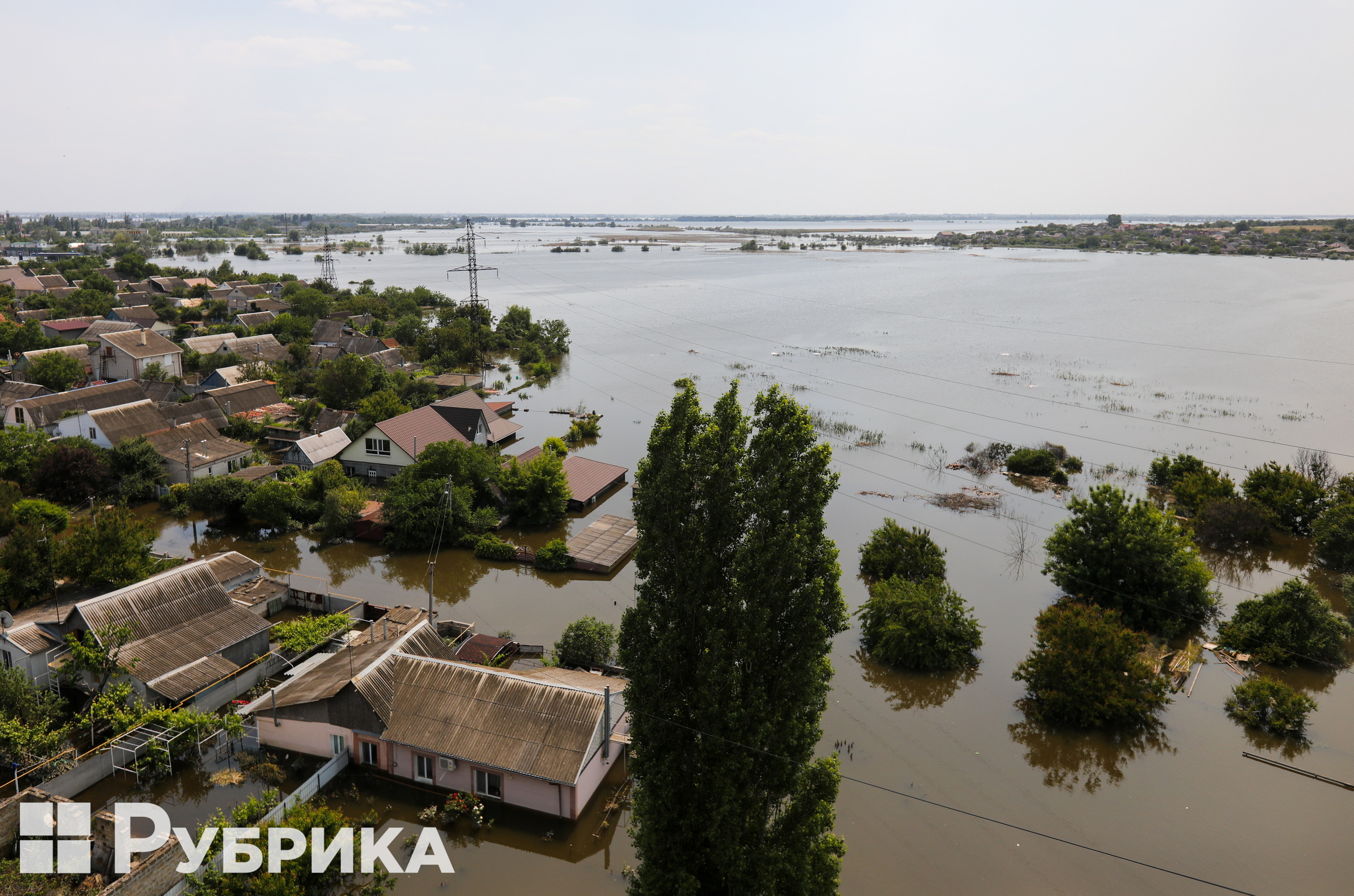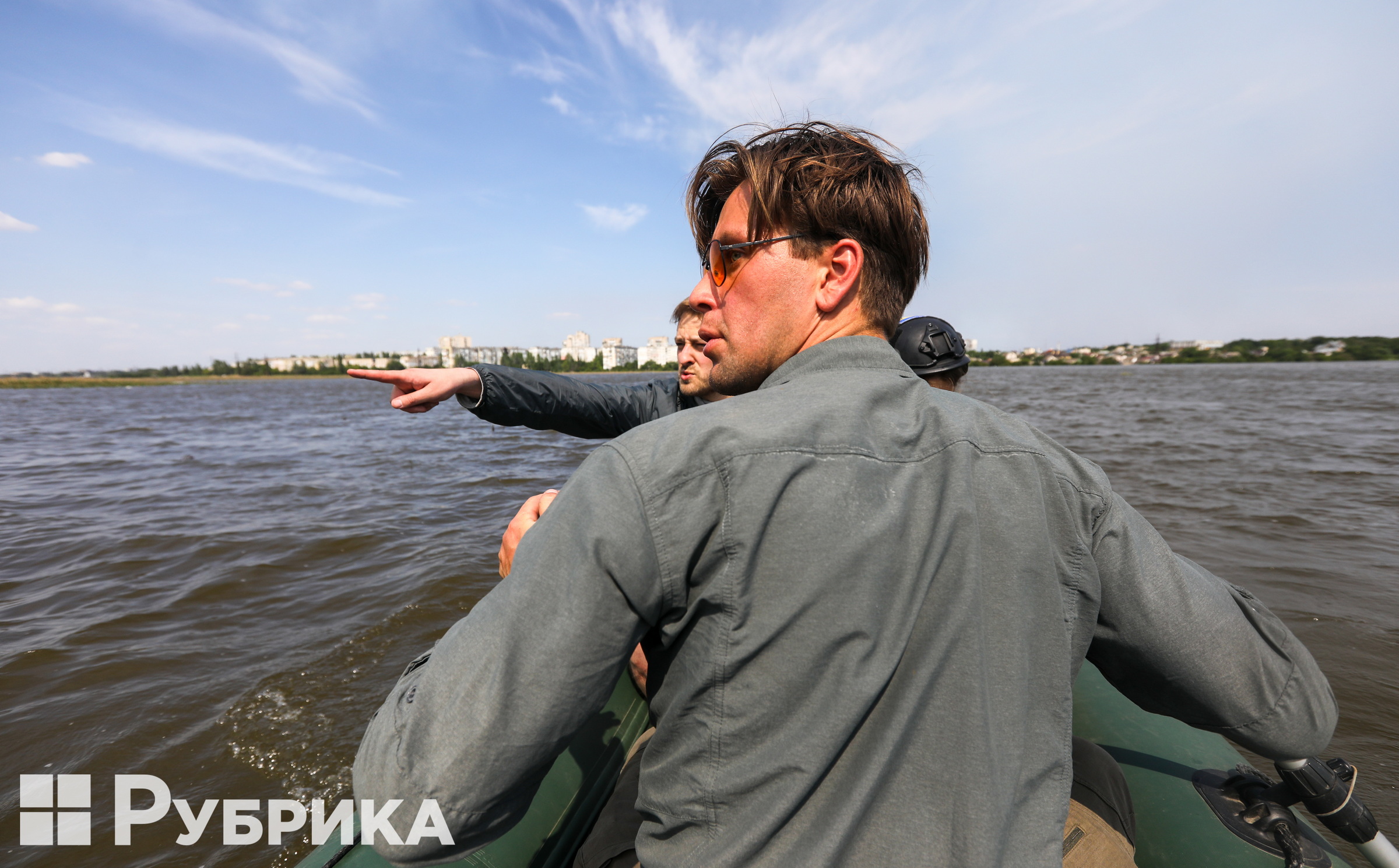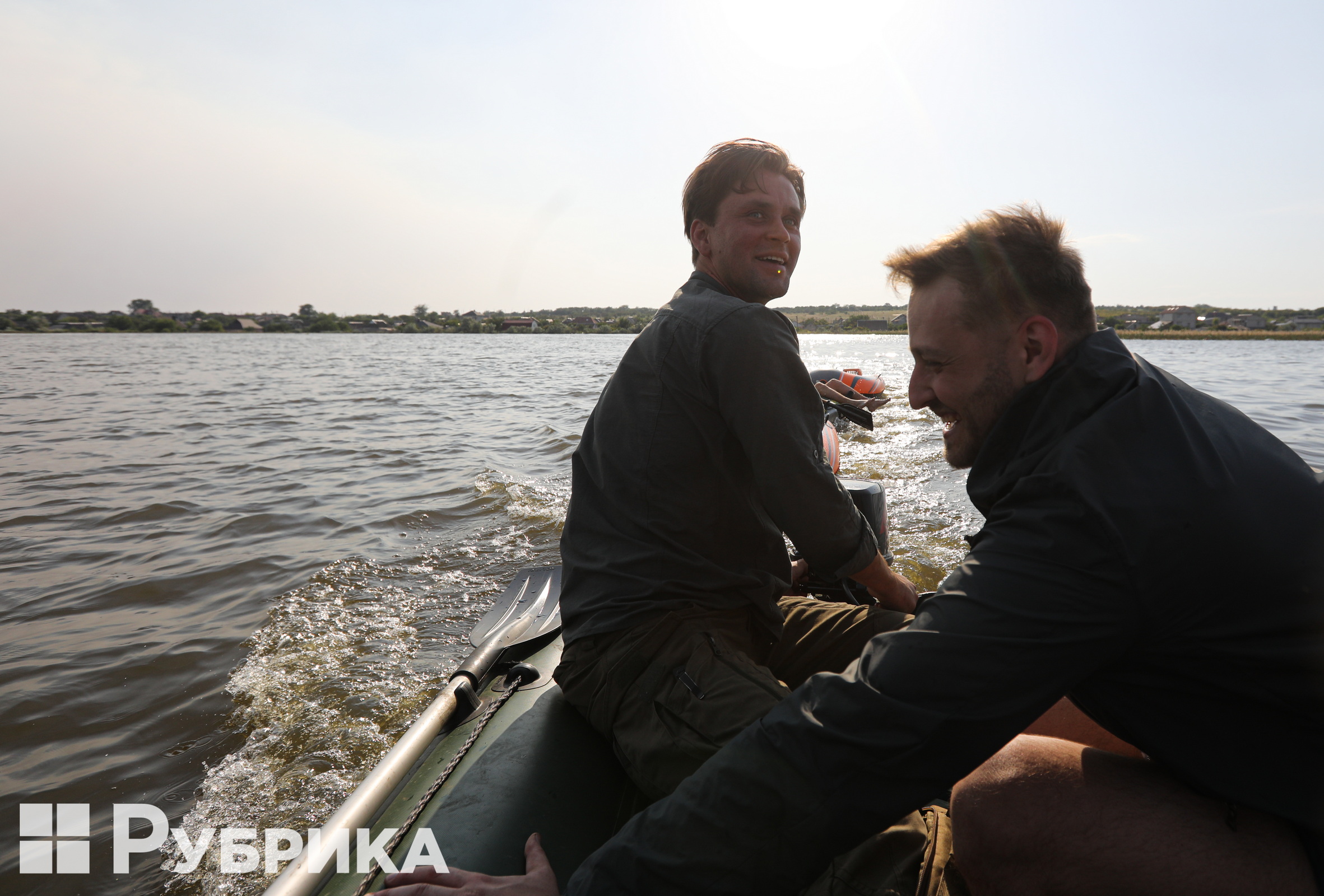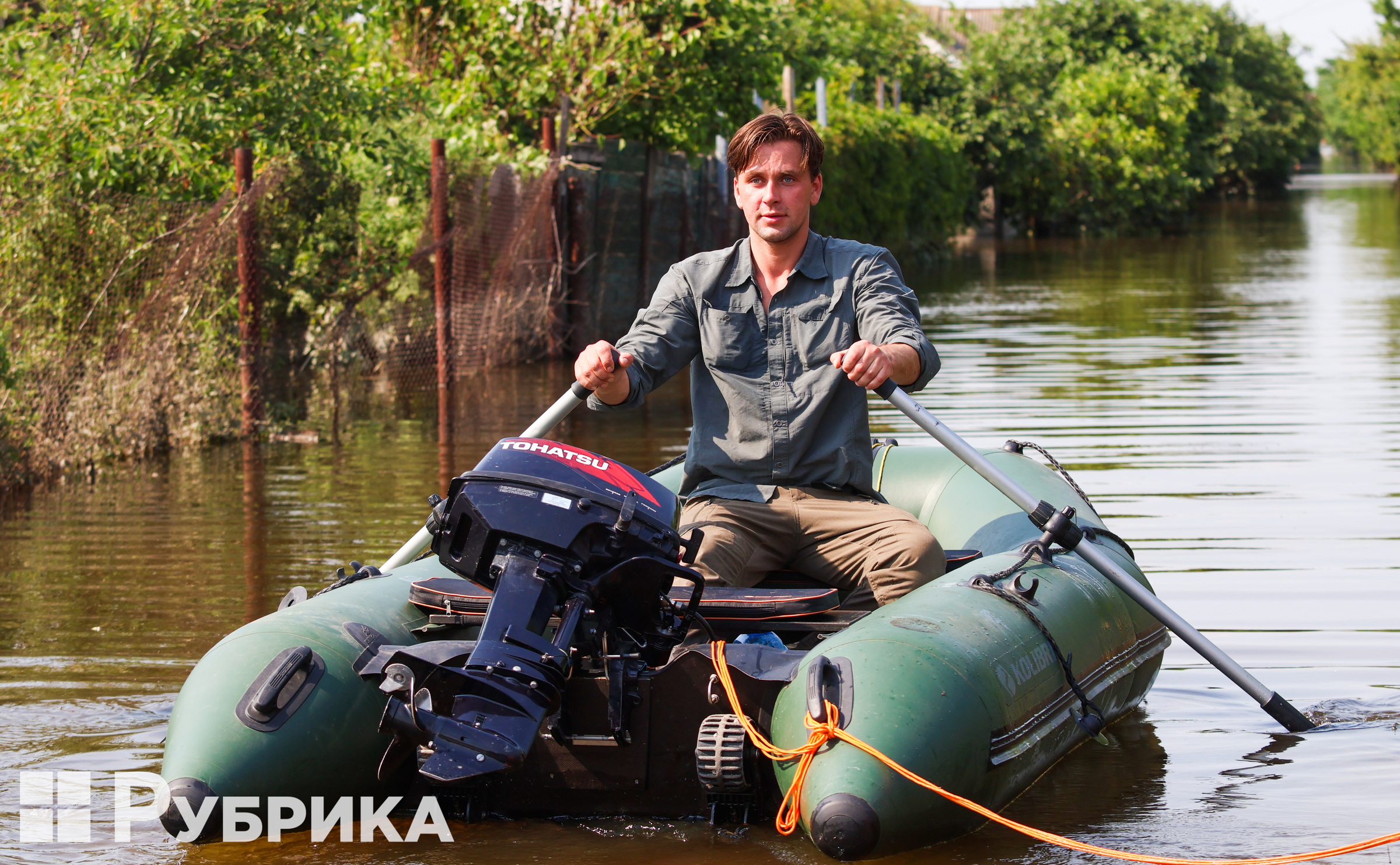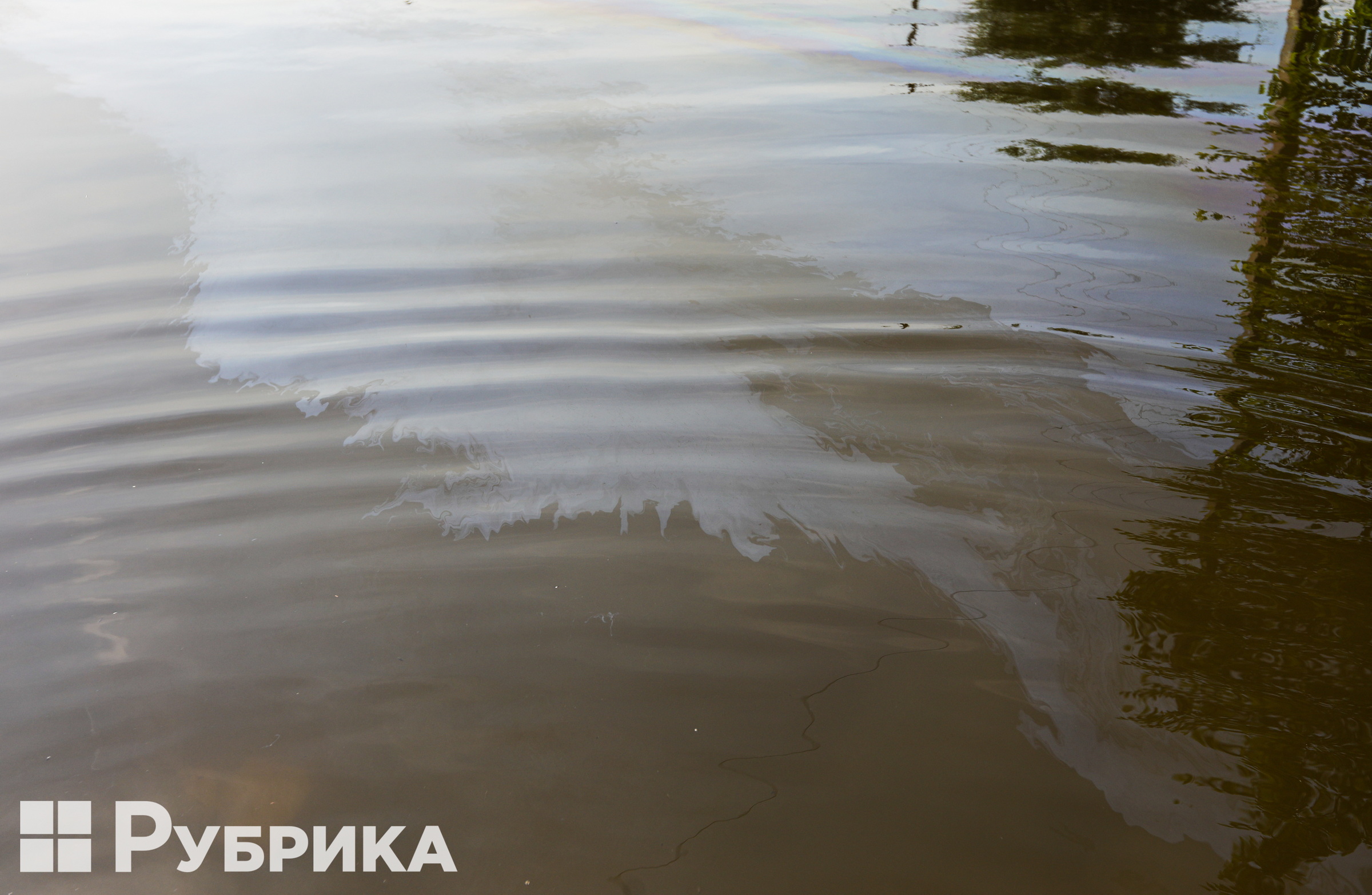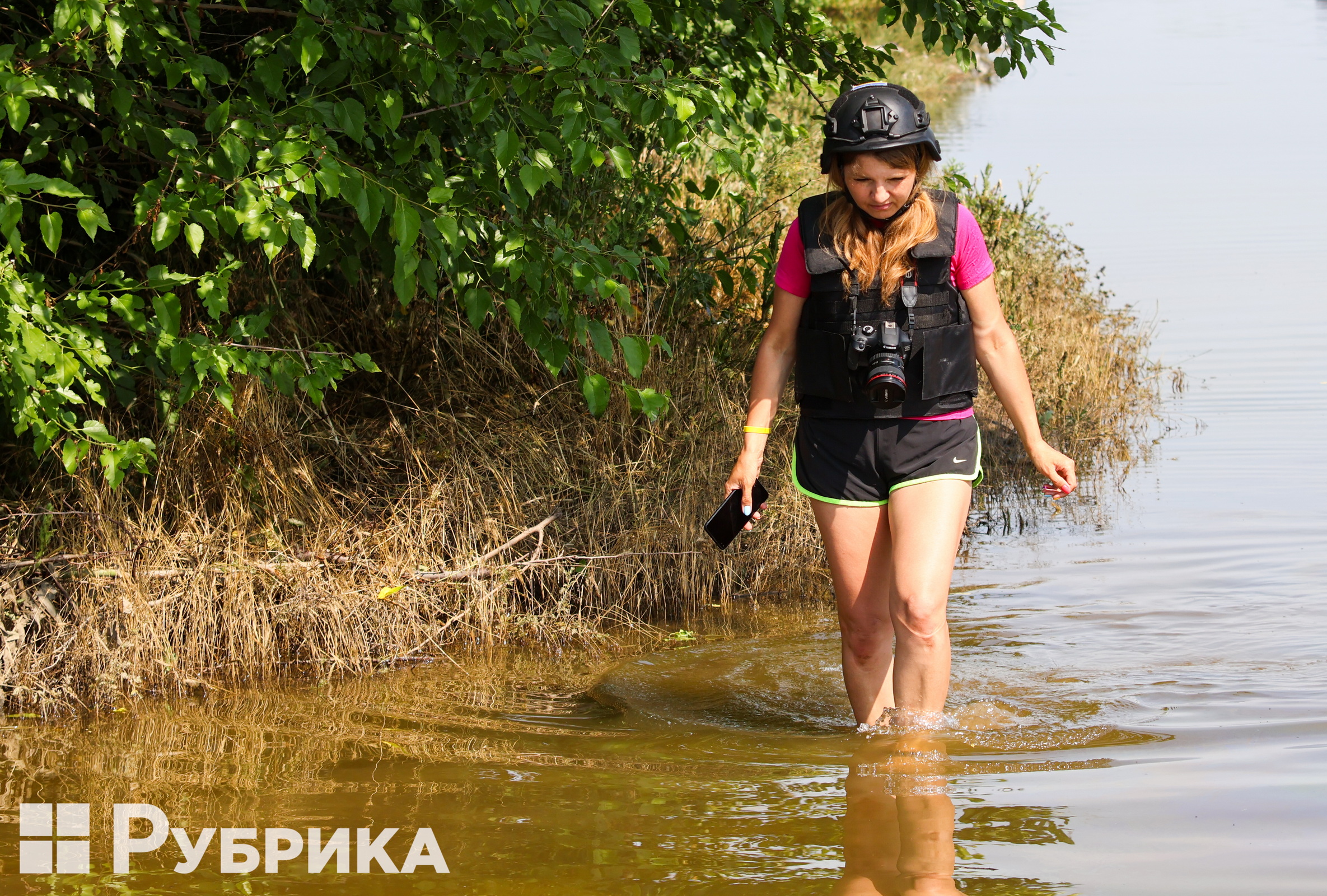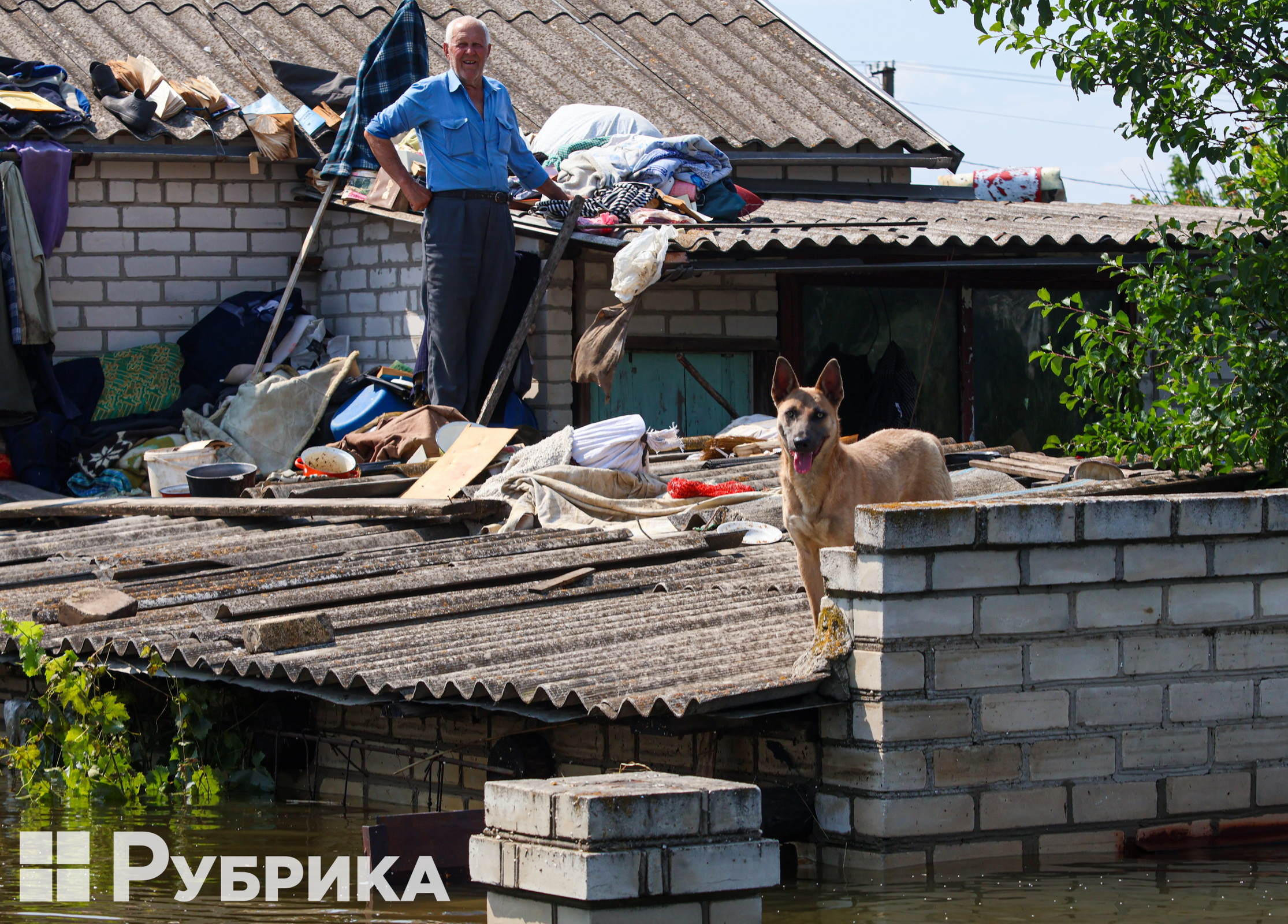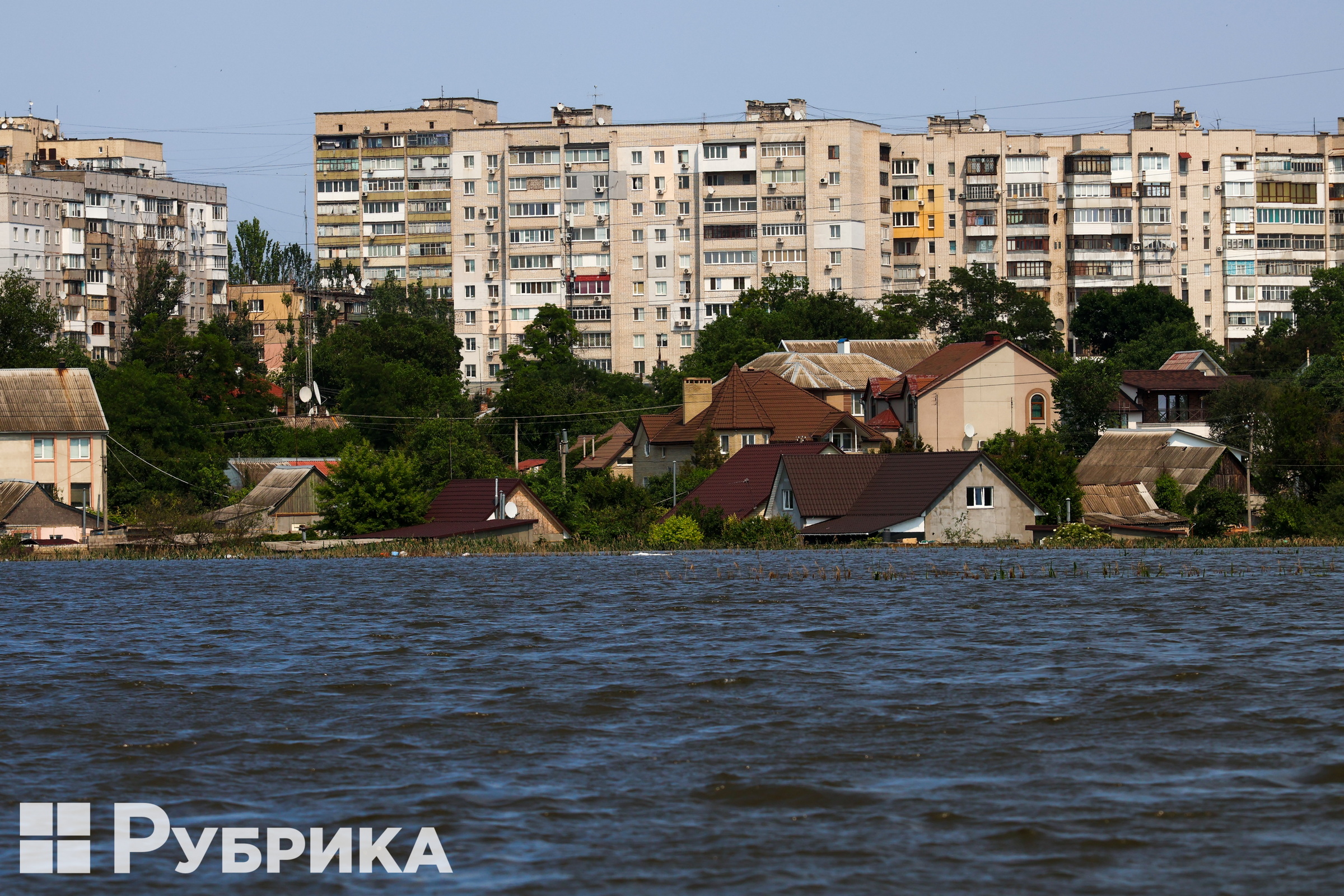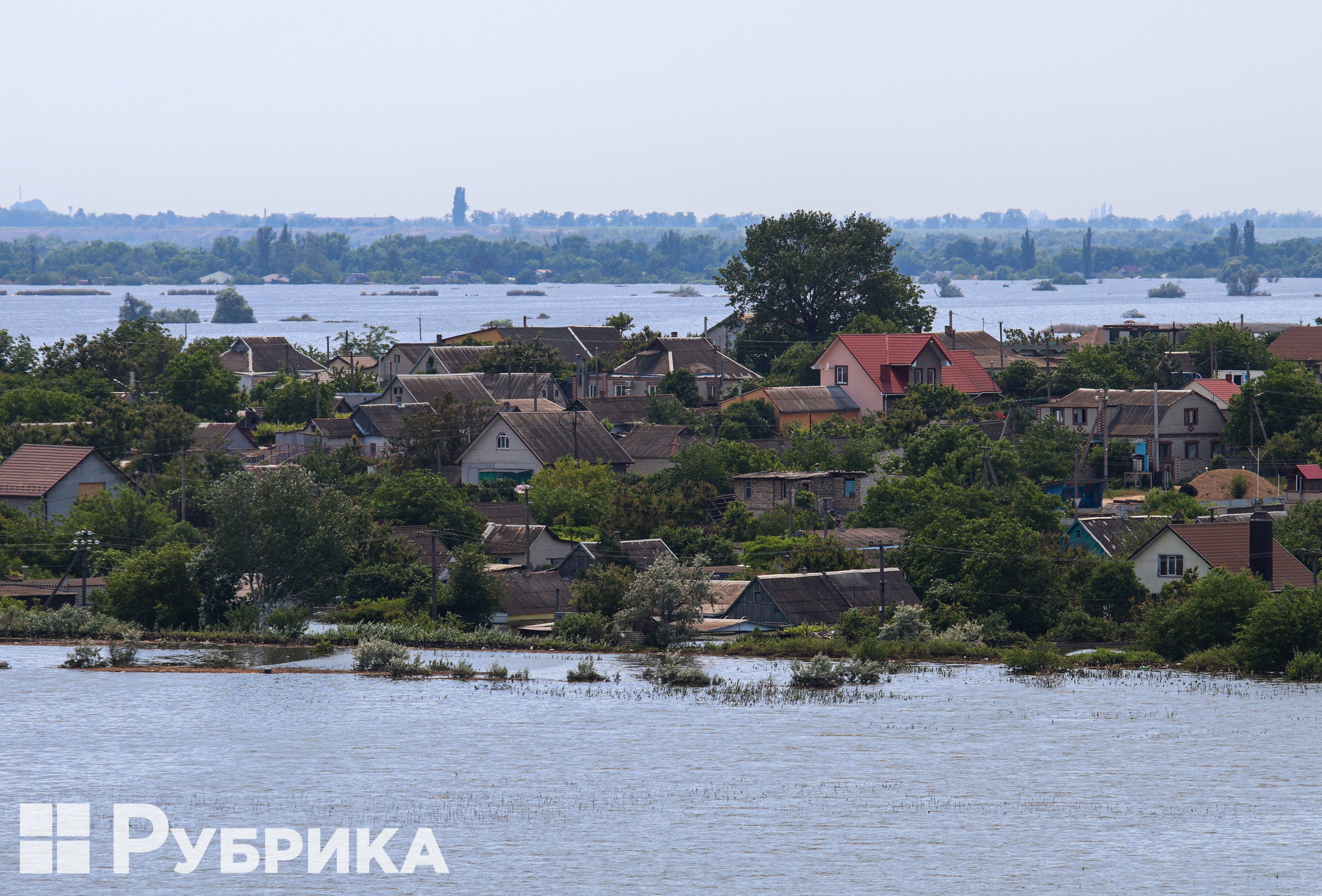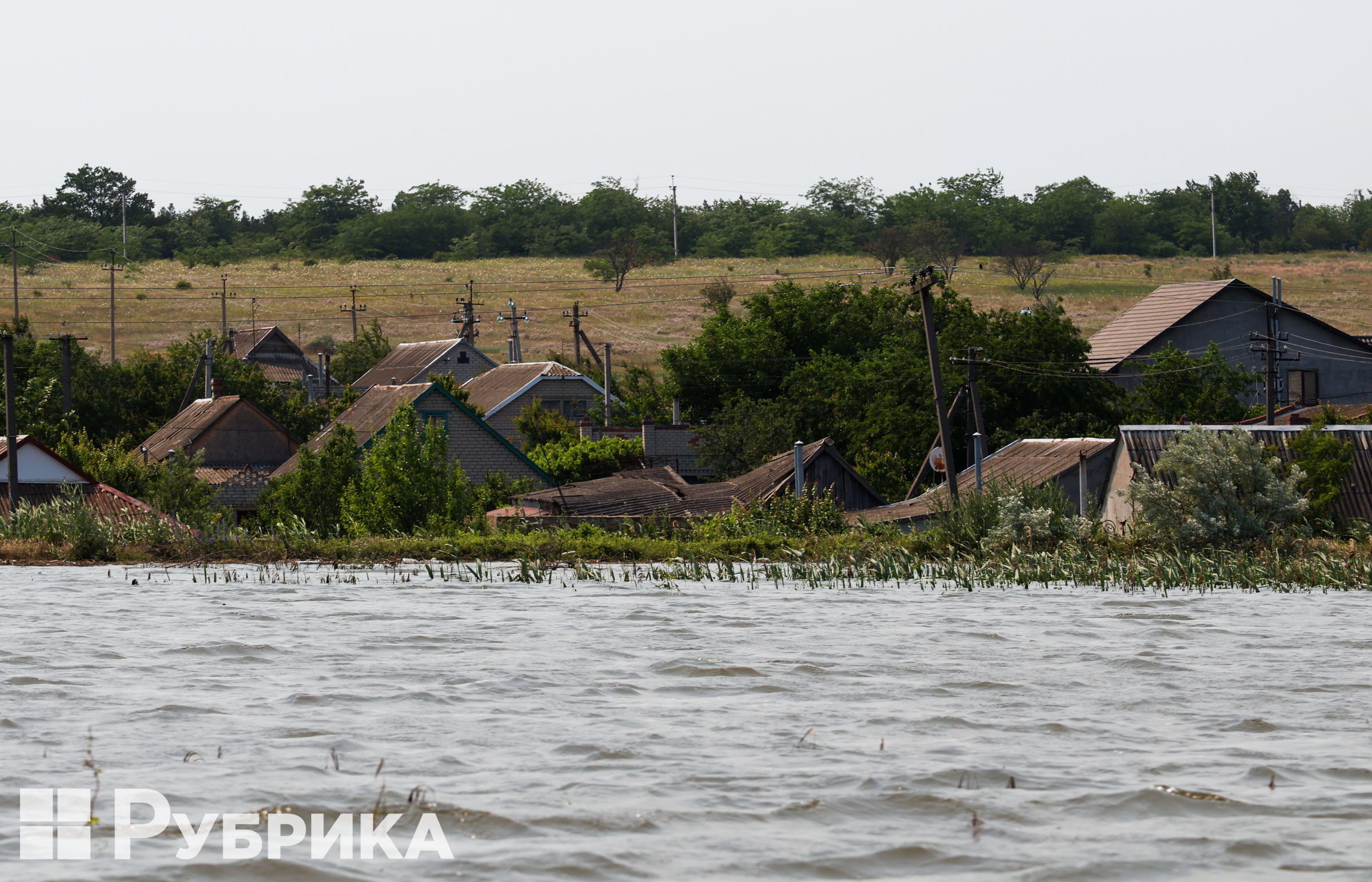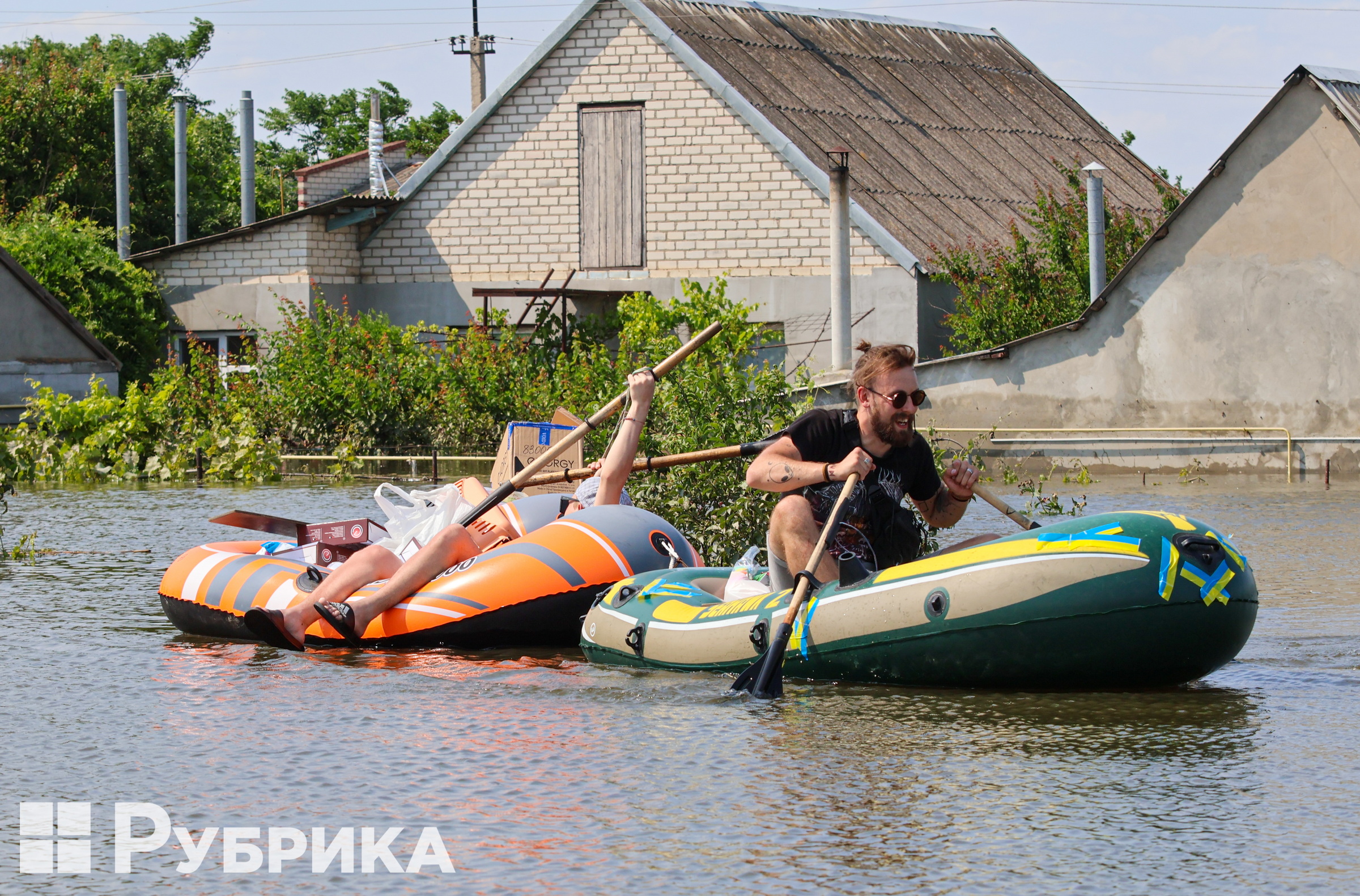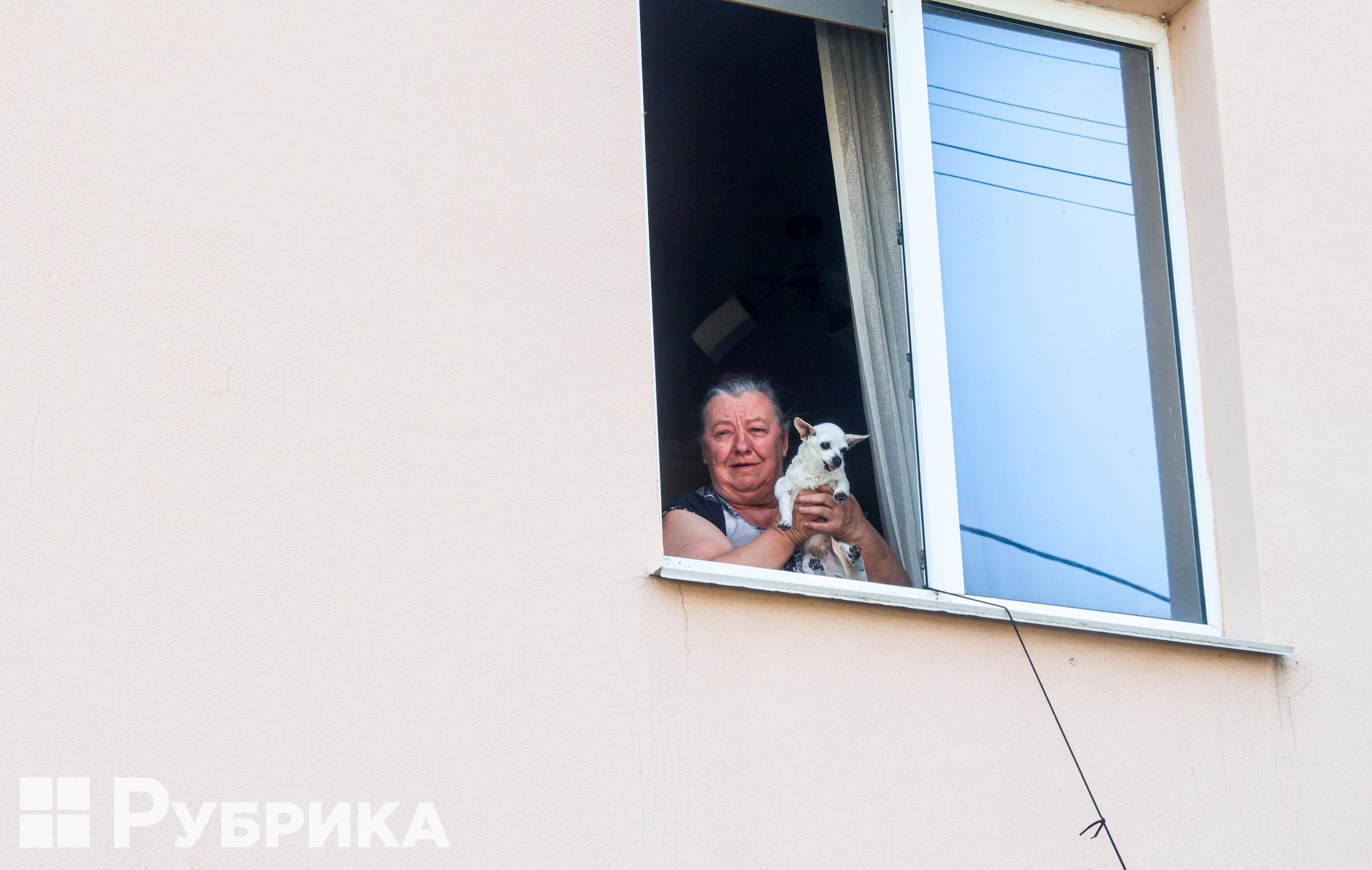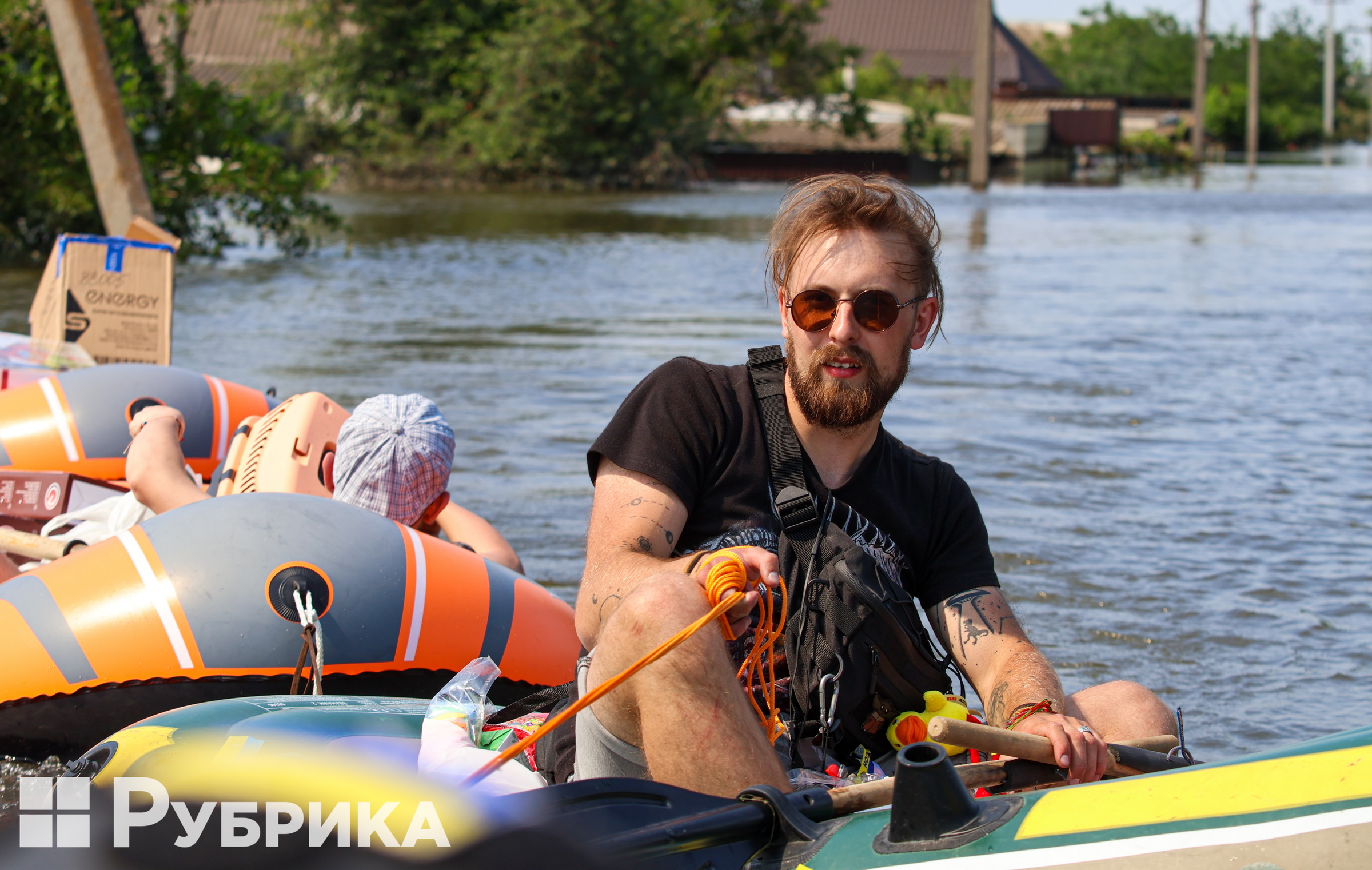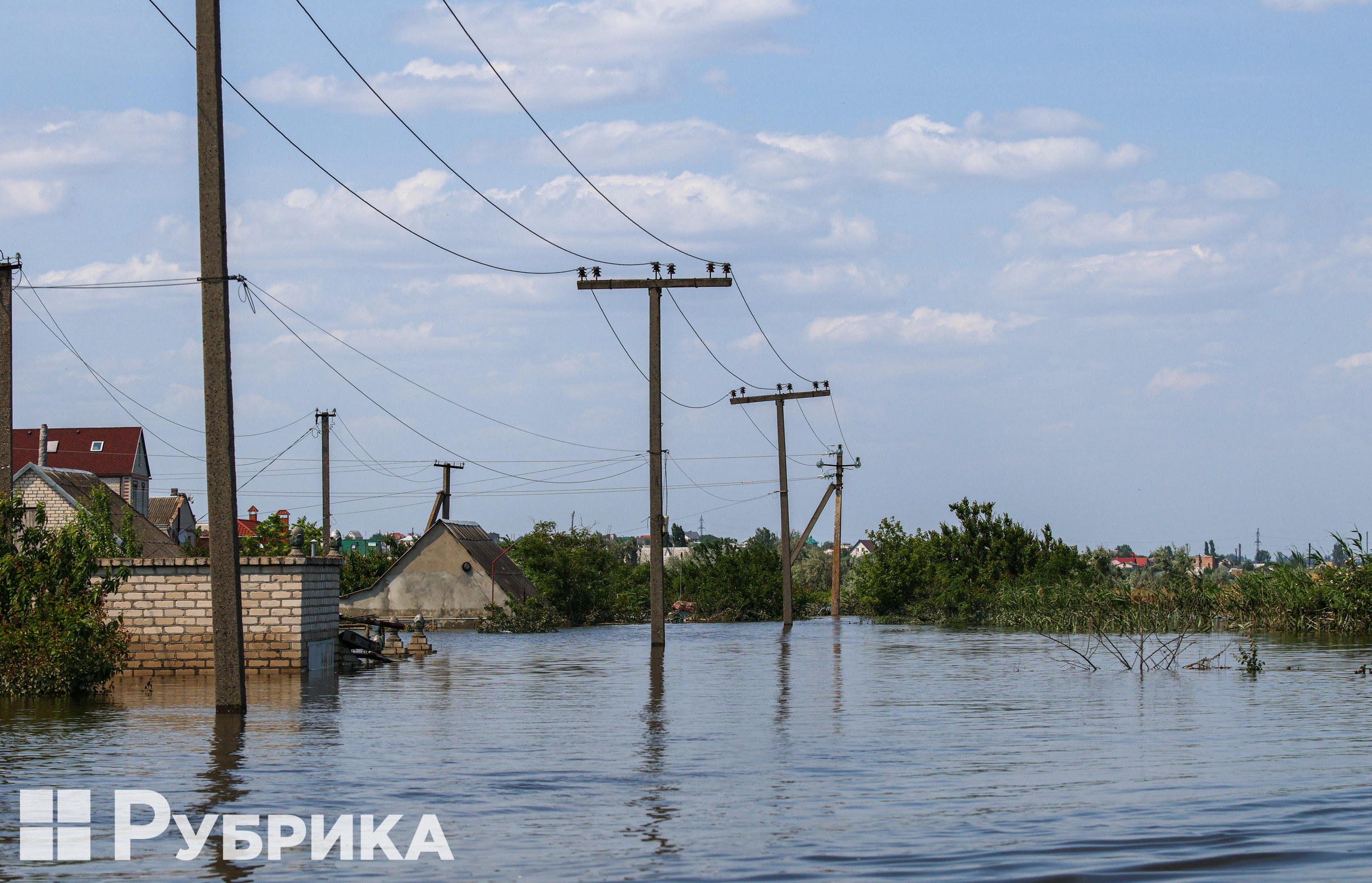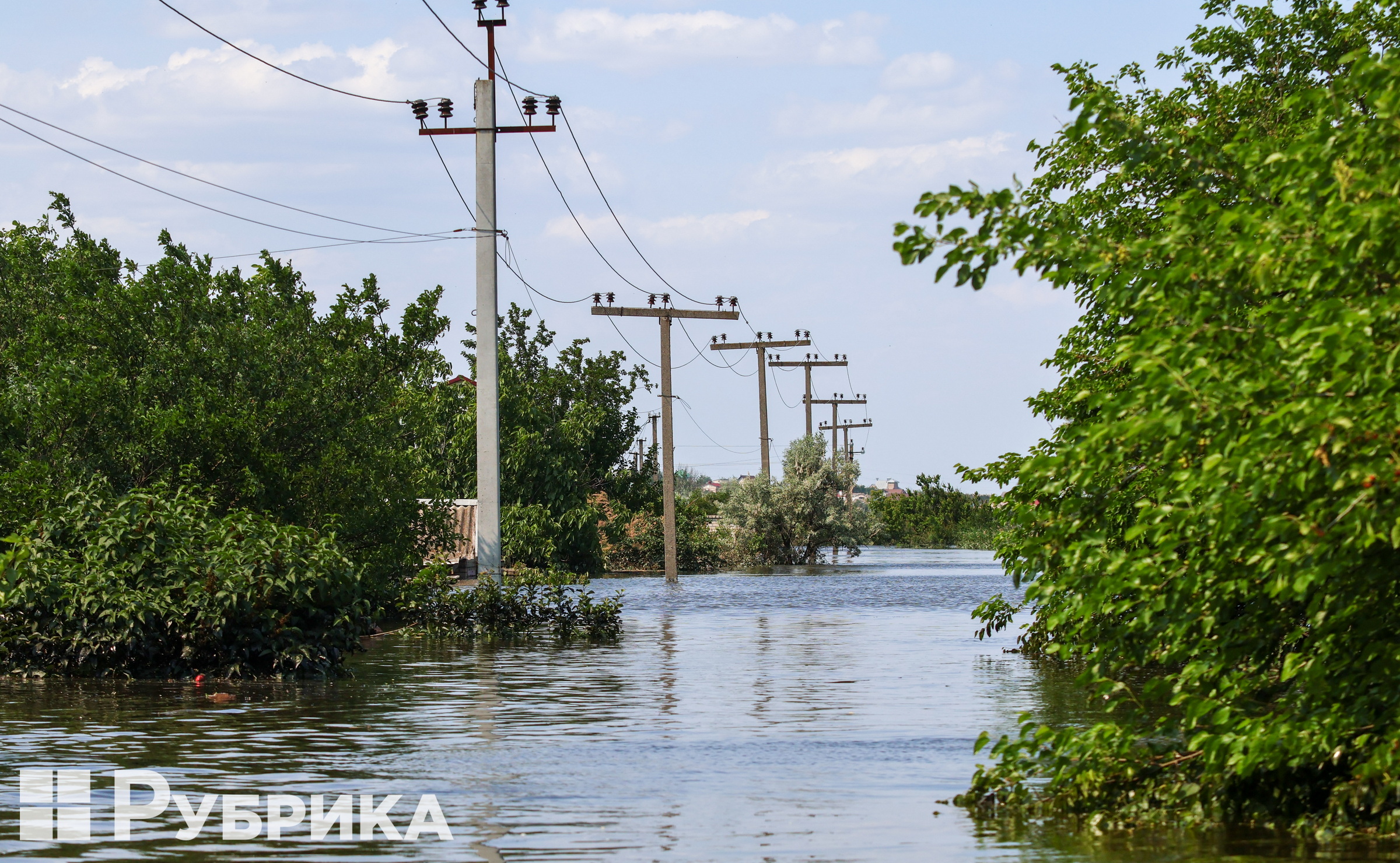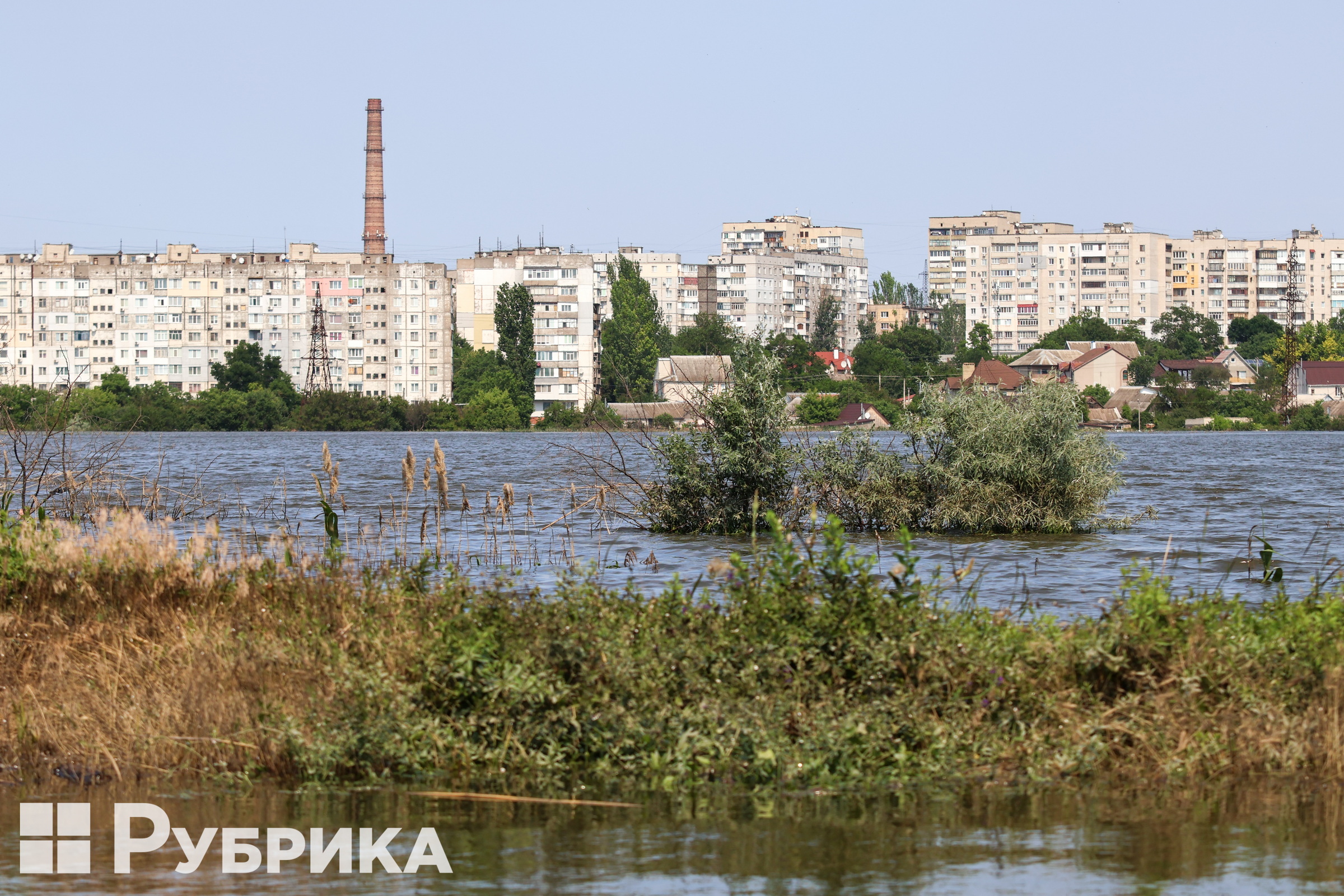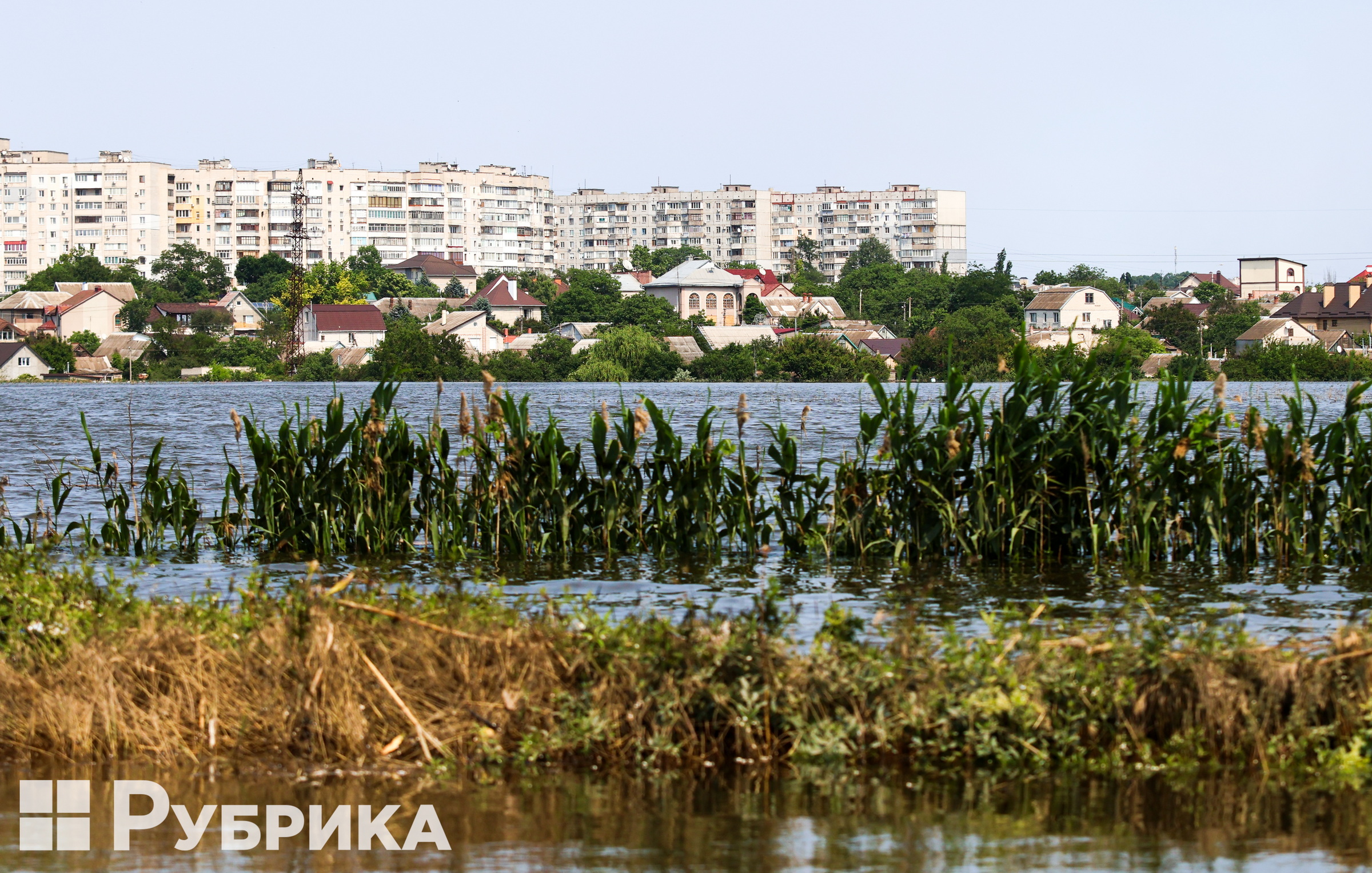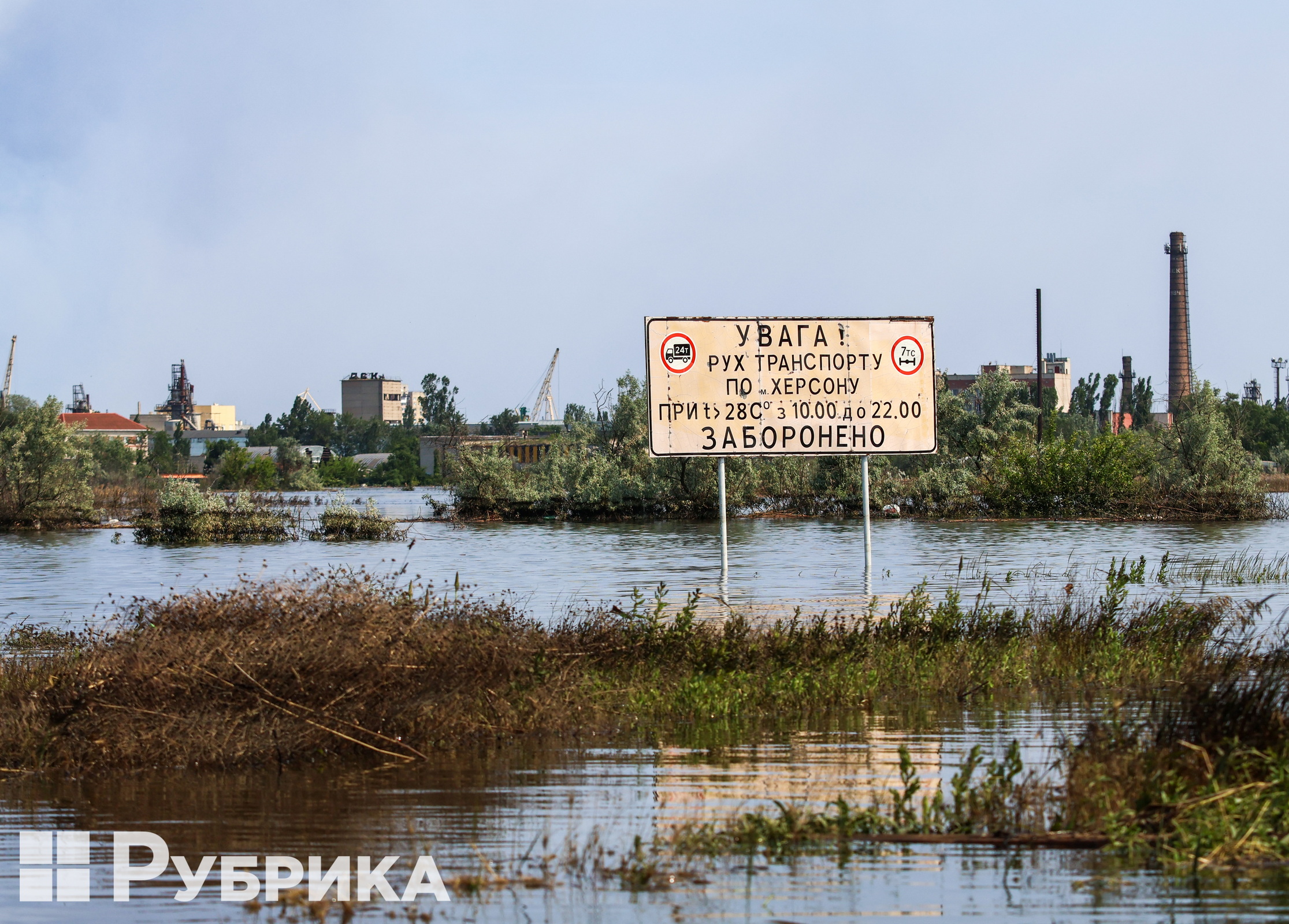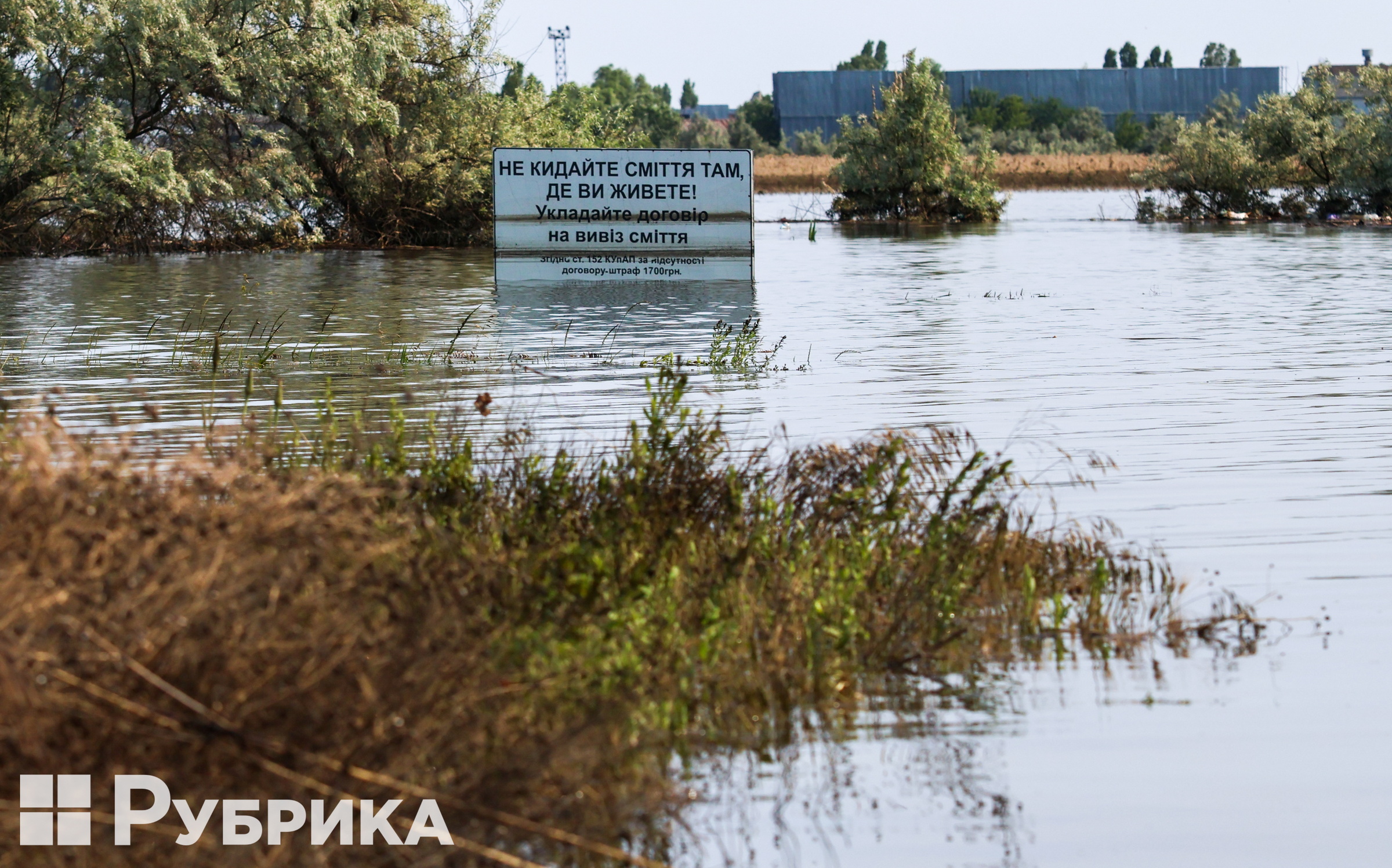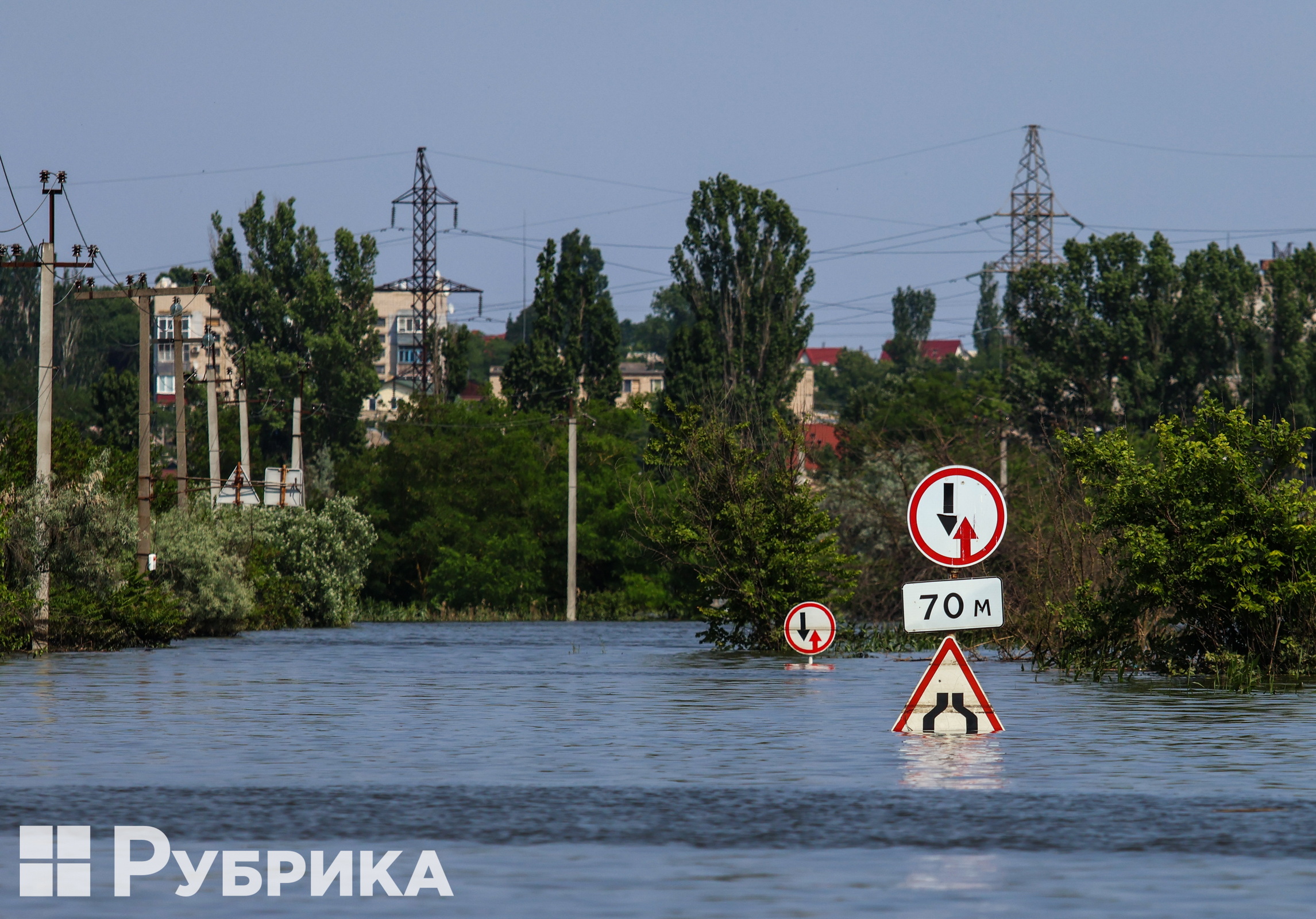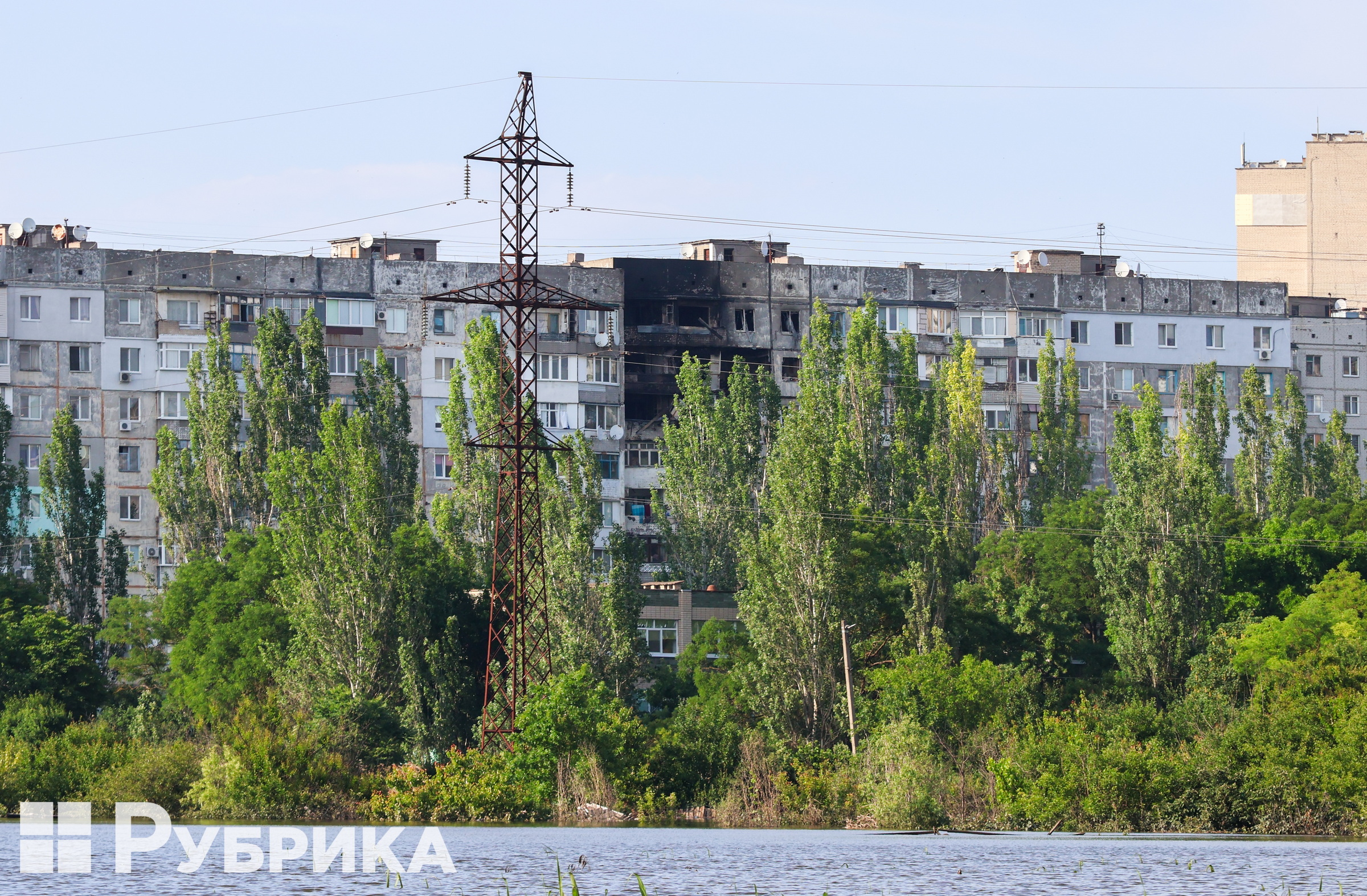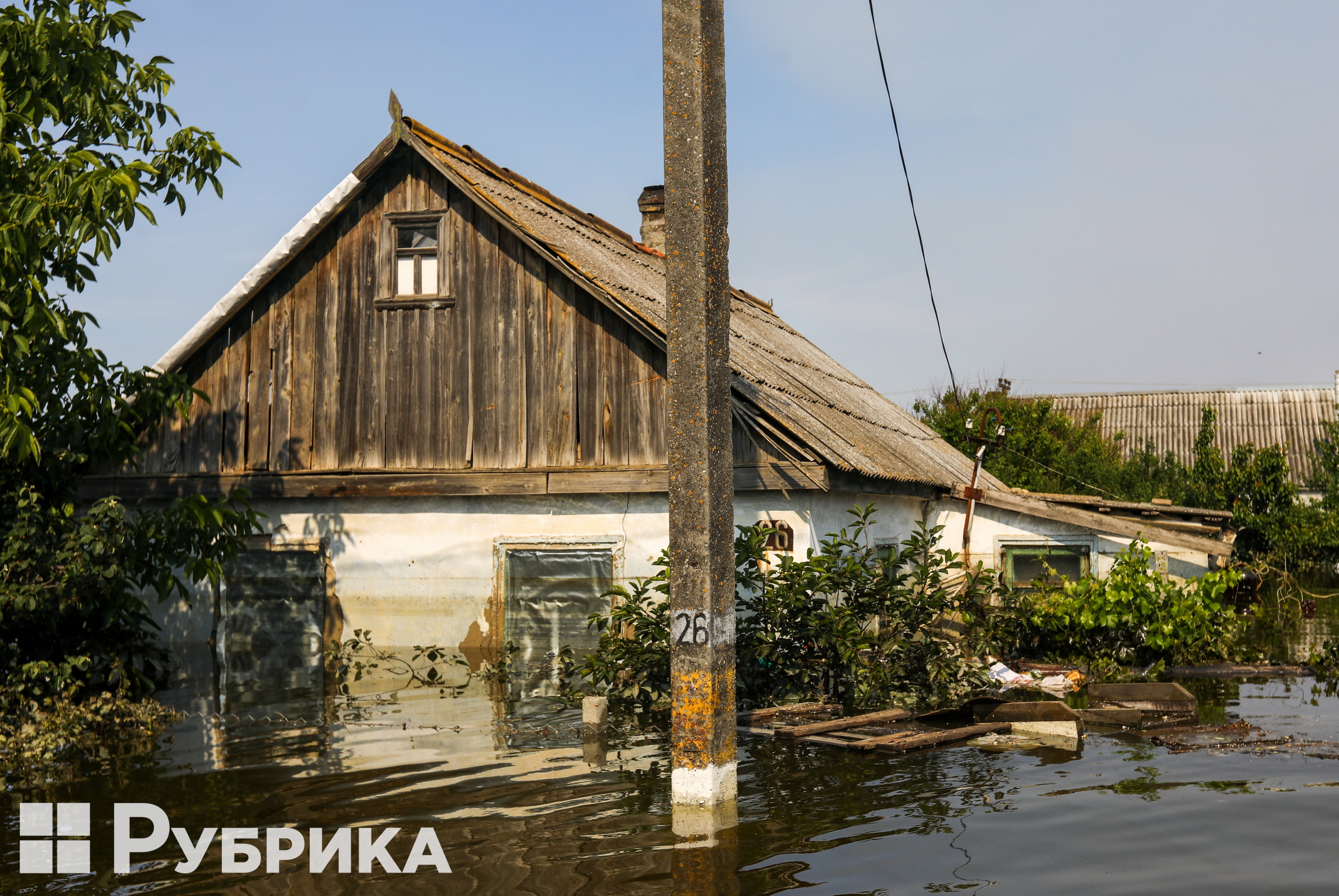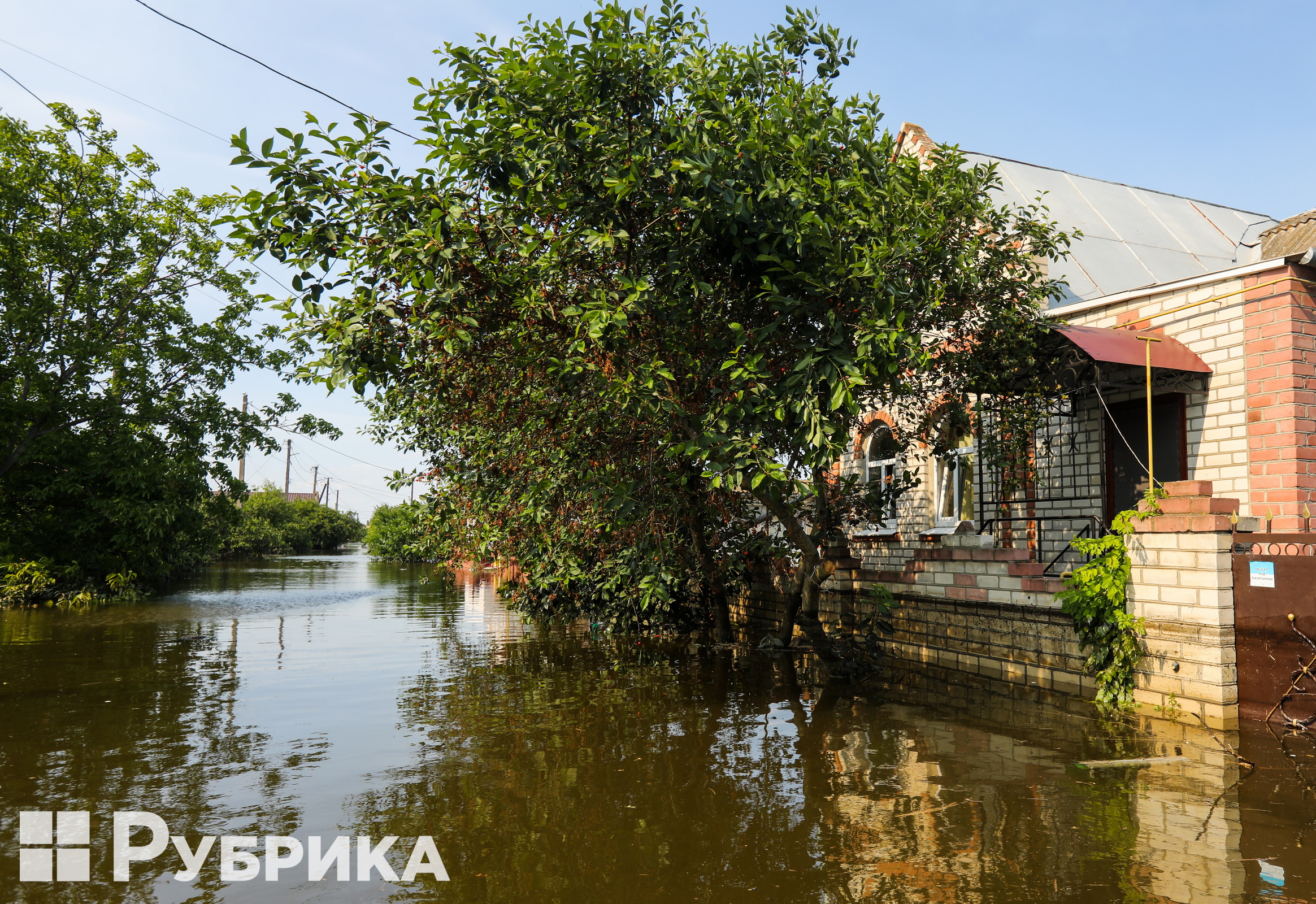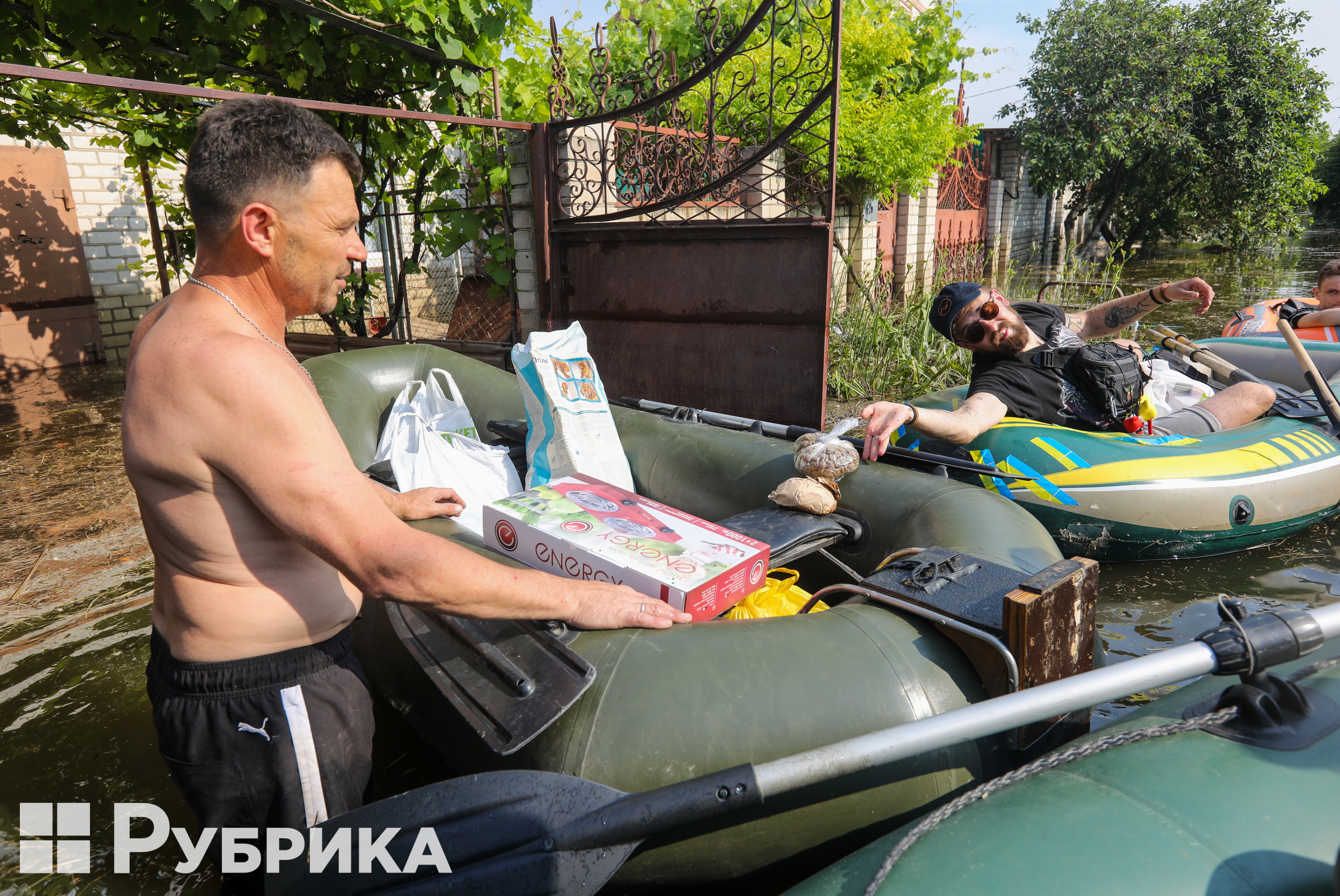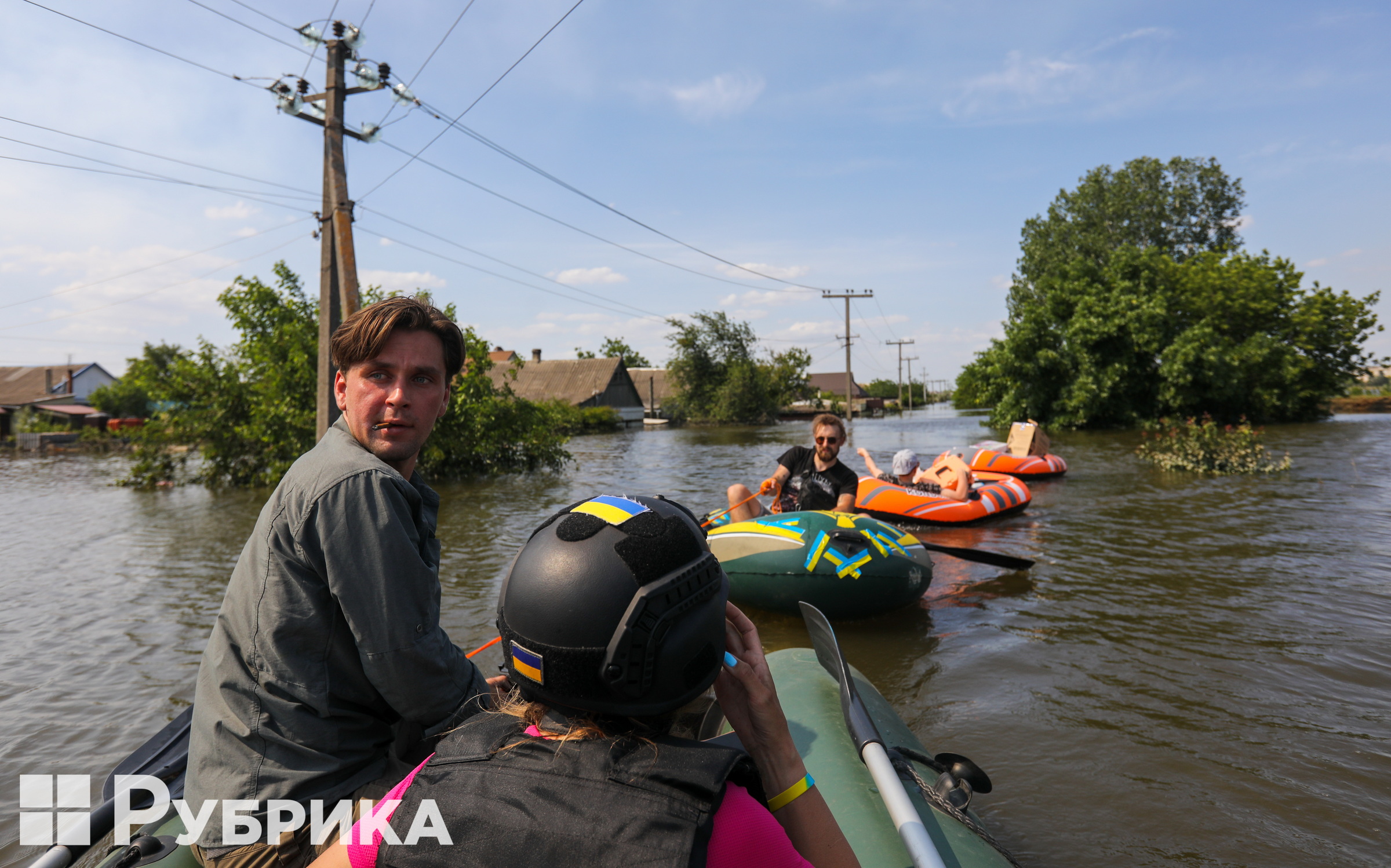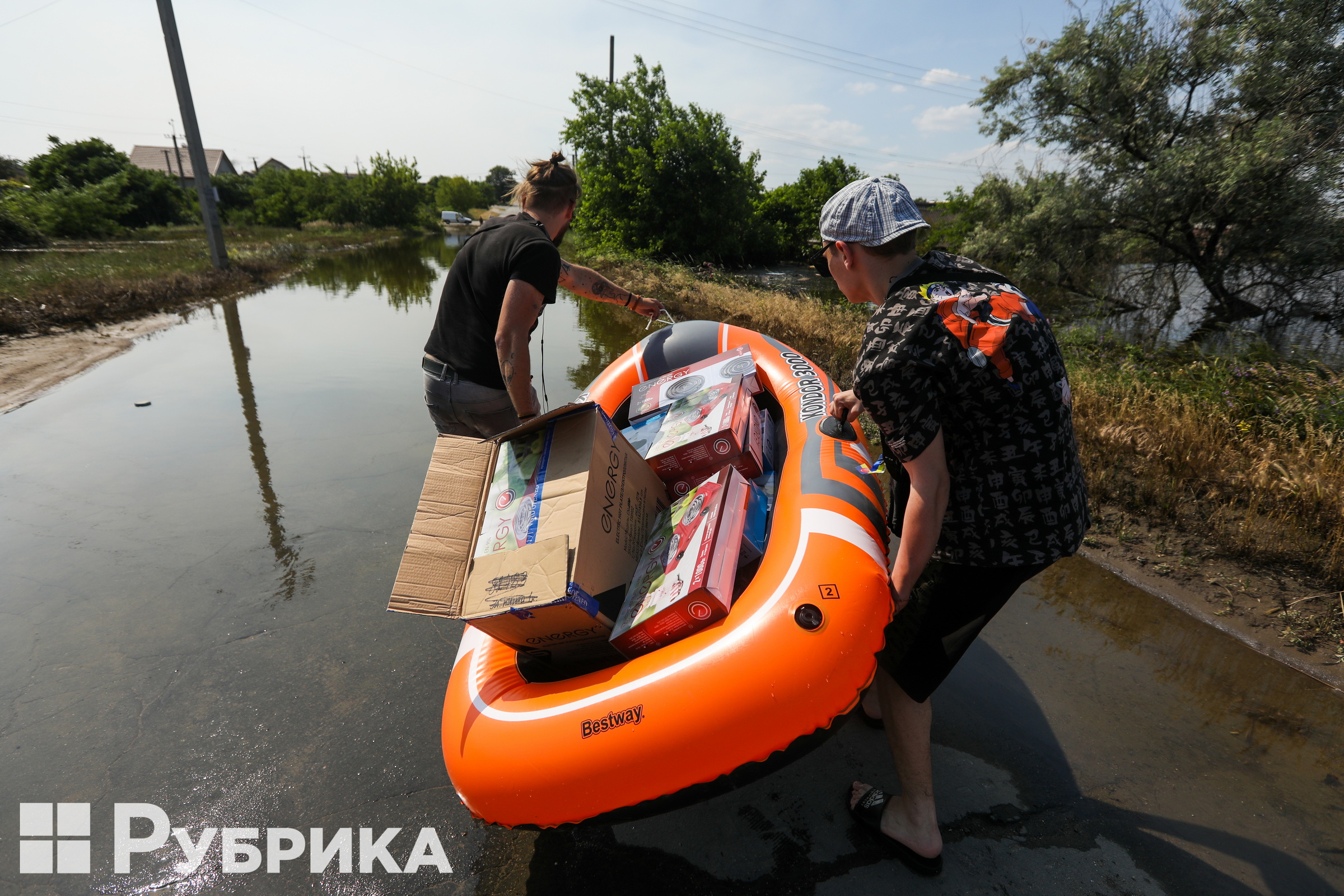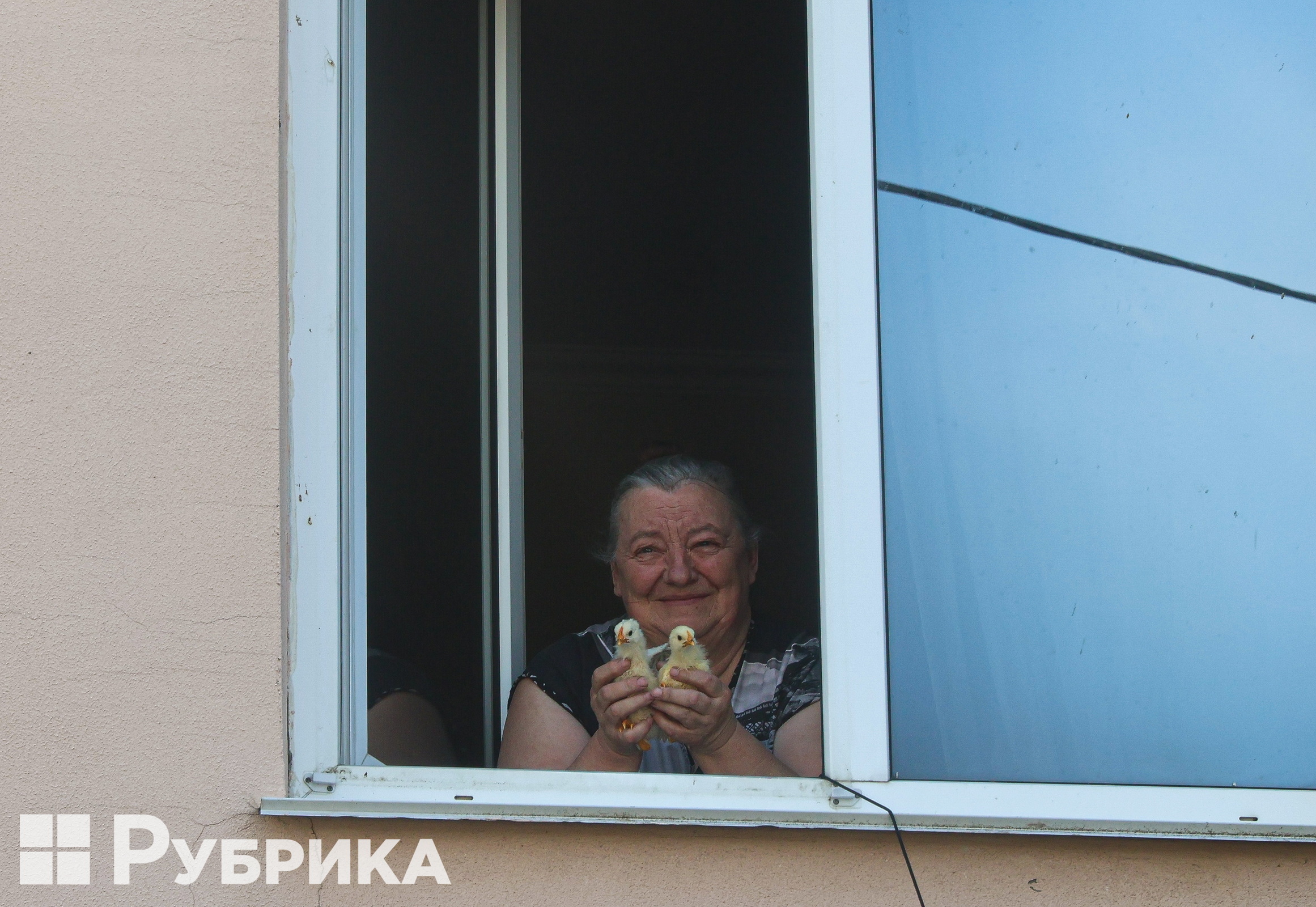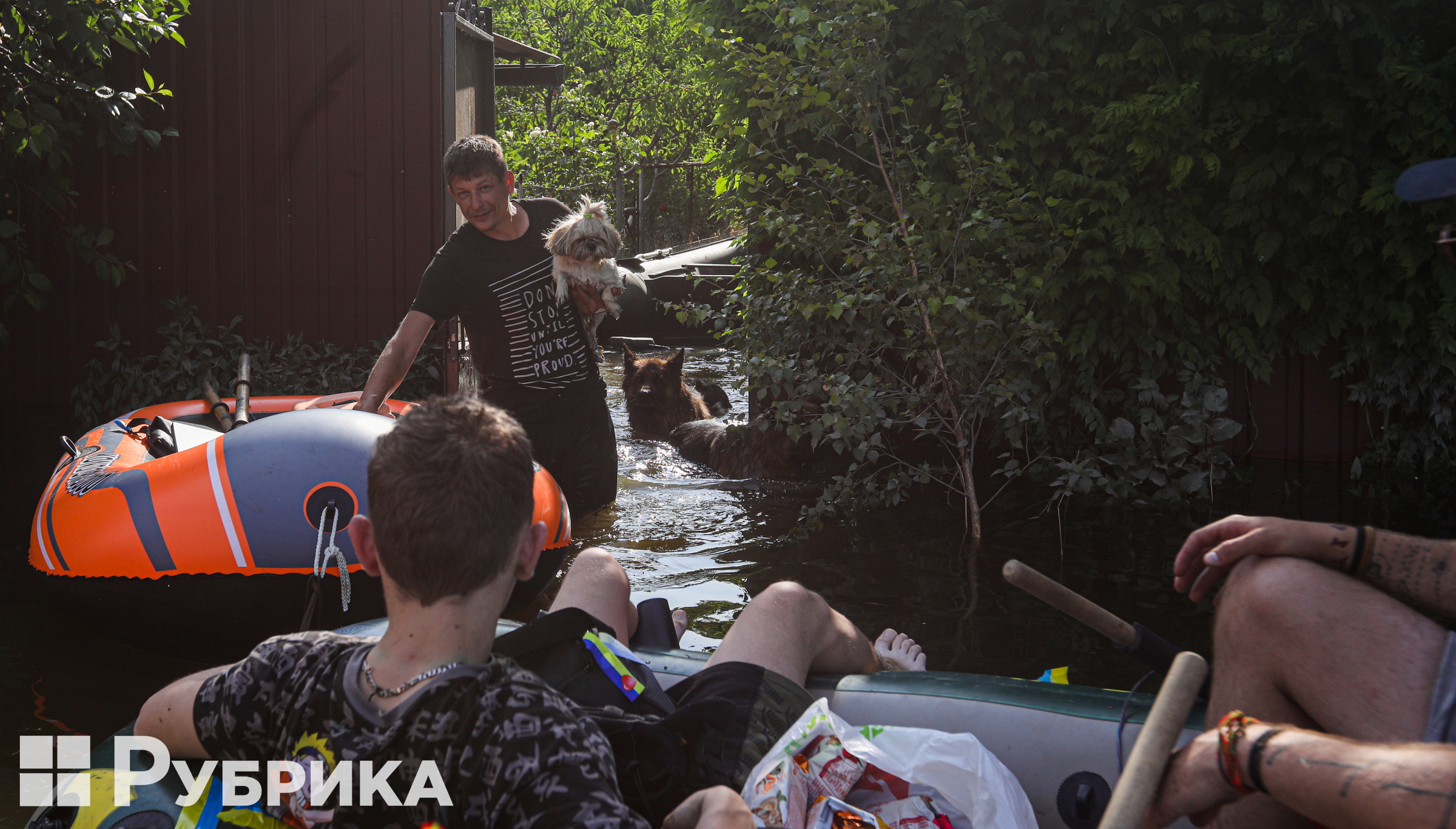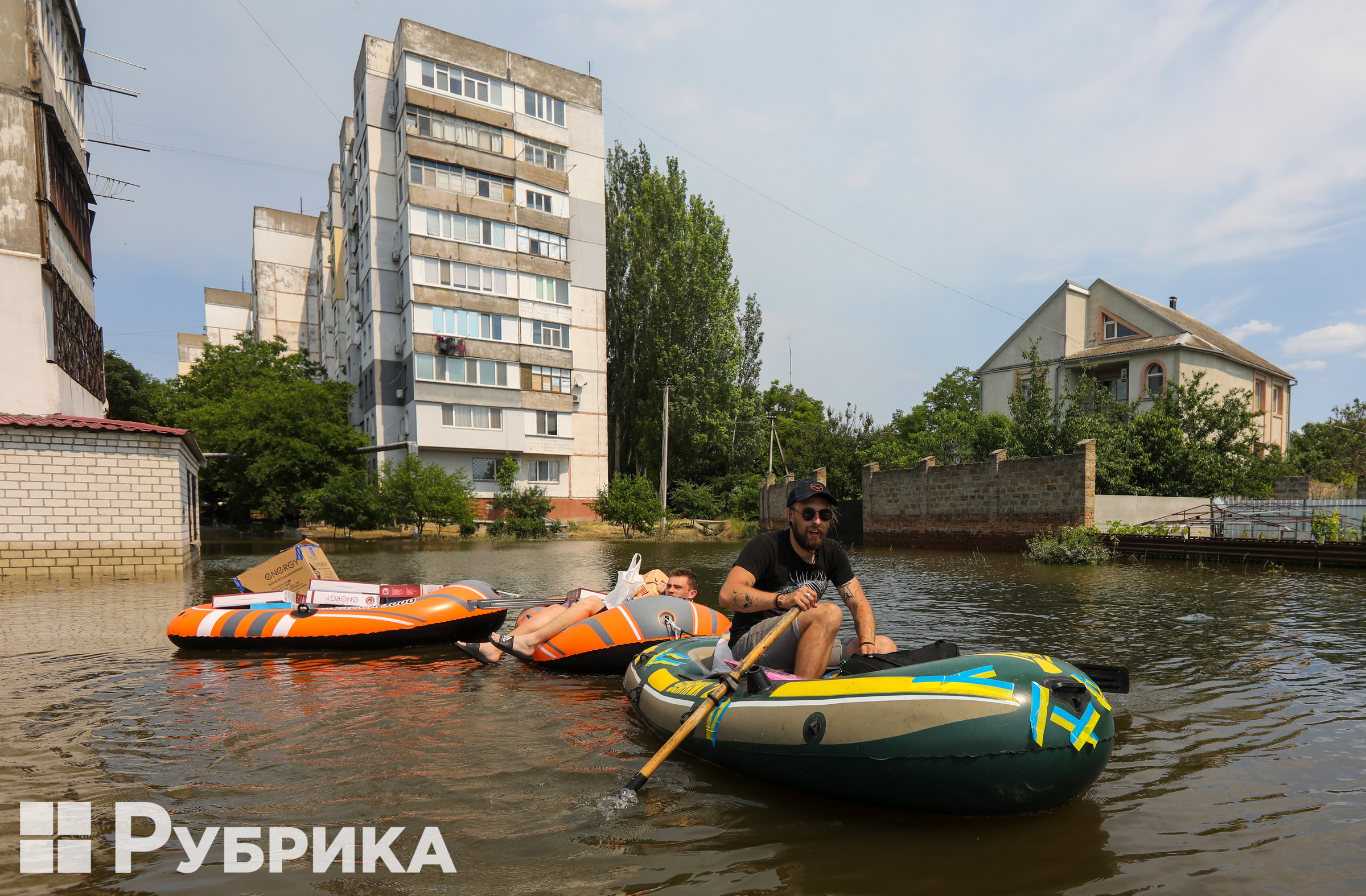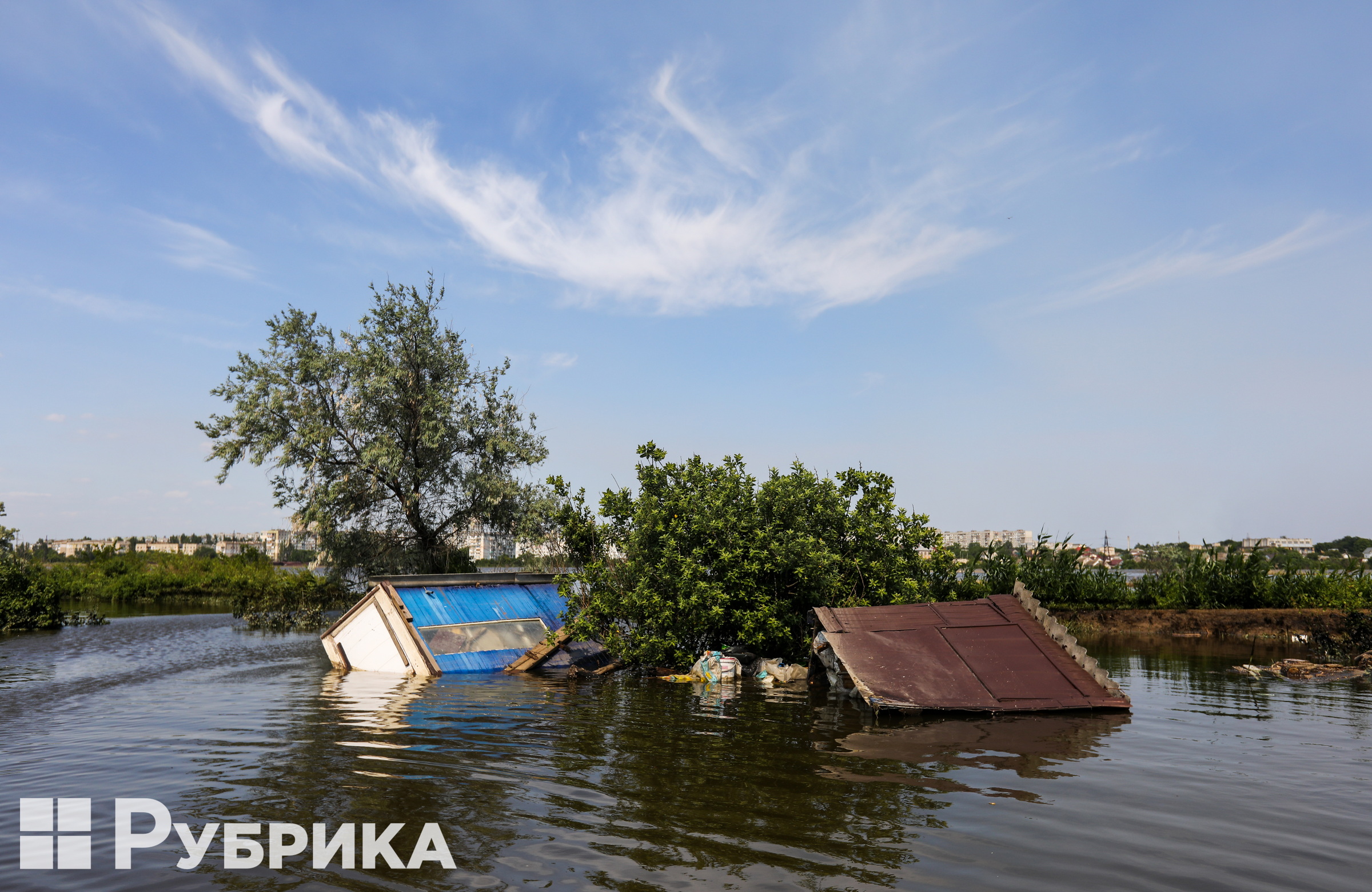
Photo: Rubryka
Today, hundreds of volunteers work in Kherson — they help people, save animals, and support citizens already on land. They are all in the same boat, overcoming the consequences of the disaster caused by the Russians. Figuratively speaking. We literally found ourselves in the same boat with a couple of such volunteers — sailing through almost the largest flooded area of the city.
Where there was a field, there is now a lake
Denys and Kyrylo are volunteers from Odesa. They came to help the Kherson people on June 8, bringing two boats with them. On the spot it turned out that they were of little use without motors, so the volunteers looked for another one — a motor one — among Kherson acquaintances, who had already left the city themselves.
Rowing between the roofs of flooded private houses, typical nine-story buildings knee-deep in water, and power poles, we find ourselves in the middle of a large lake. On a hot day, it would be a real pleasure to swim in it. Only there might be mines in the lake, carried away by the flow of water from the mined territories on the left bank of the Dnipro, as well as dangerous substances that ended up in the water as a result of the Russians blowing up the Kakhovka hydroelectric power plant. It's not really a lake.
Stepping into the water and coming out of it, you feel a film on your skin and see marks left by polluted water. Locals say they have water reserves for drinking and cooking, but you need more to wash off after staying in the polluted water around the houses.
A neatly dressed elderly man stands on one of the roofs of private houses nearby. Next to him is his sheepdog, and behind him is an improvised bed in the open air. We approach closer, and volunteers ask if he needs anything. The man refuses — he says that he is already waiting for someone.
Volunteers continue to go to houses where people still lived. They bring them electric stoves — the gas in the flooded houses was turned off, but the electricity was not.
Frogs in the gardens
Oleksii and Oleh are from Kherson. Both are now volunteering, helping the townspeople. Oleksii says that he usually volunteers for children — for more than a month, he has been holding holidays for them in the surrounding villages. With the disaster at the Kakhovka HPP, the volunteers began to help everyone who might need immediate help. Oleksii explains that there are still people here who do not want to leave their homes.
We ask about the greatest needs of people in the flooding zone.
Oleksii sighs:
"There was a lot of demand for dog food. Just yesterday, we brought food to a man with four dogs. And groceries, of course. Now the problem for Kherson is drinking water."
As we speak, the boats are being carried towards the houses by the current — a little more and we would have come across someone's fence, which, although underwater, is quite close to the surface. Fortunately, we bypass the danger.
Locals say that the flooding happened quickly. If, on April 6, around eleven in the morning, the water just started to rise in Kherson, then by the morning of the next day, private houses were already completely flooded — only the tops of the roofs could be seen. Now the water is slowly receding. Someone smiles and says that now the frogs are croaking in the gardens. Especially in the morning — "as soon as you leave the house, you listen to a concert."
As soon as the water recedes completely, Oleksii plans to visit the villages again to organize events for children there.
"The children are very happy about that," he says and adds that part of the success is provided by Patron's dog costume, detection dog, and mascot for the State Emergency Service of Ukraine, and the gifts the volunteer gives to the children, and, of course, the attention and feeling of the holiday.
A very green blooming city
Our boat moves on, and we meet another local — we help him near his flooded house. A man stands up to his waist in water. We asked if it was possible to save something in the house, and he said that he had saved the documents and the clothes he was wearing. The man adds that, despite everything, he will already go to work tomorrow — he works in the police, in security.
"War is war, flood is flood, and work is work," laughs the man.
A woman in a house nearby has a flooded basement, with water up to her knees on the first floor. She says she lives now on the second floor. She took her dog and chickens with her.
In another house, we are met by Anton and his two shepherd dogs — Aphrodite and Berta. Behind him are two more dogs — a large Cane Corso and a small fluffy Shih Tzu with a neat ponytail on its head. The Khersonian says he has four more cats, all of which are now hiding in the house.
We ask if he has anyone else, and he laughs:
"Not yet. Although mice were swimming in the yard, we laid boards for them. I feel sorry even for them."
We begin to move back towards the mainland. The Russians are shelling the city again.
When we ask what the Odesa volunteers in Kherson will remember, Denys says not the flood, the devastating consequences, or the shelling.
"A very green, blooming city," he says instead. — "Very beautiful."
Kherson is in all of this. Blooming and beautiful. Despite all.






